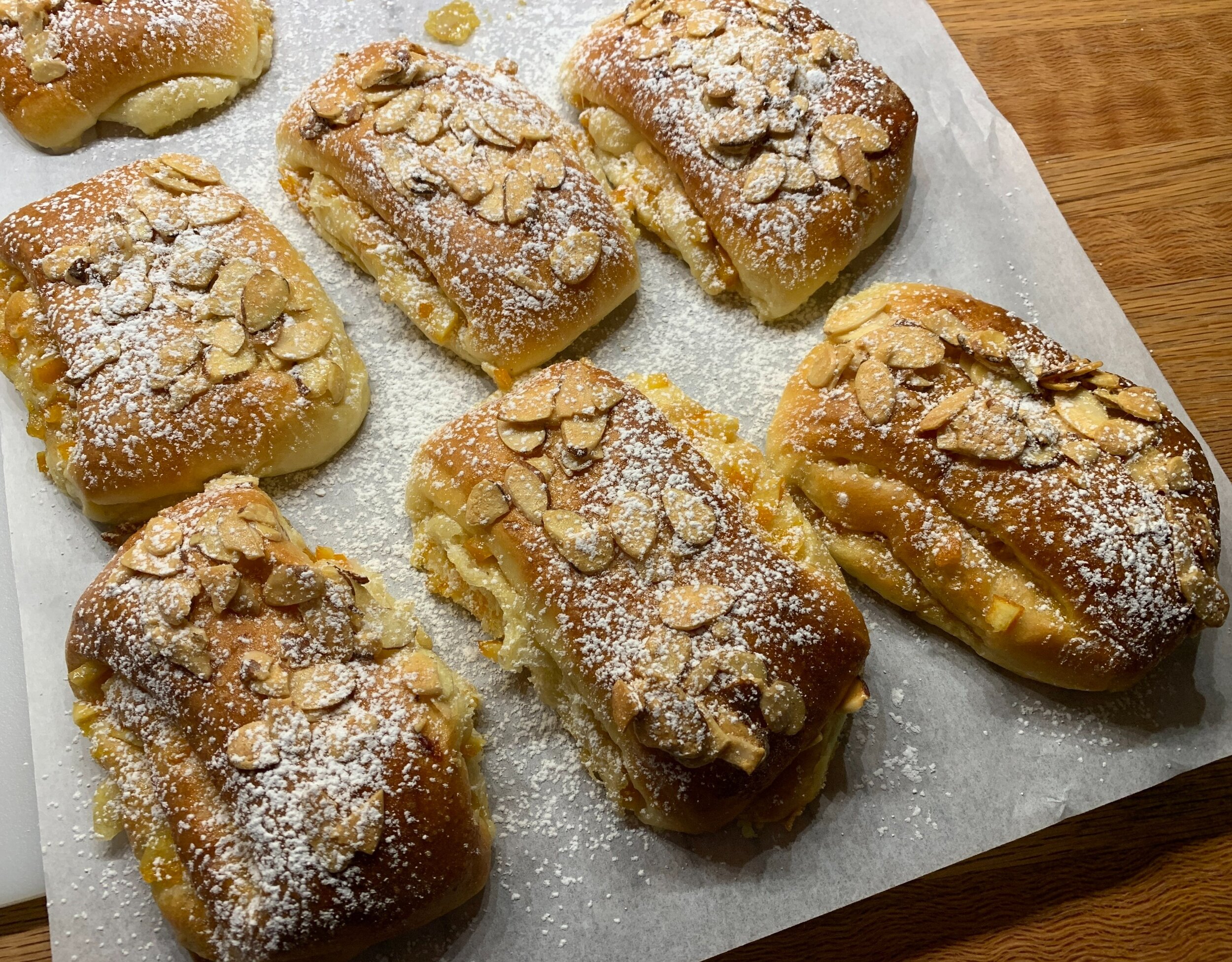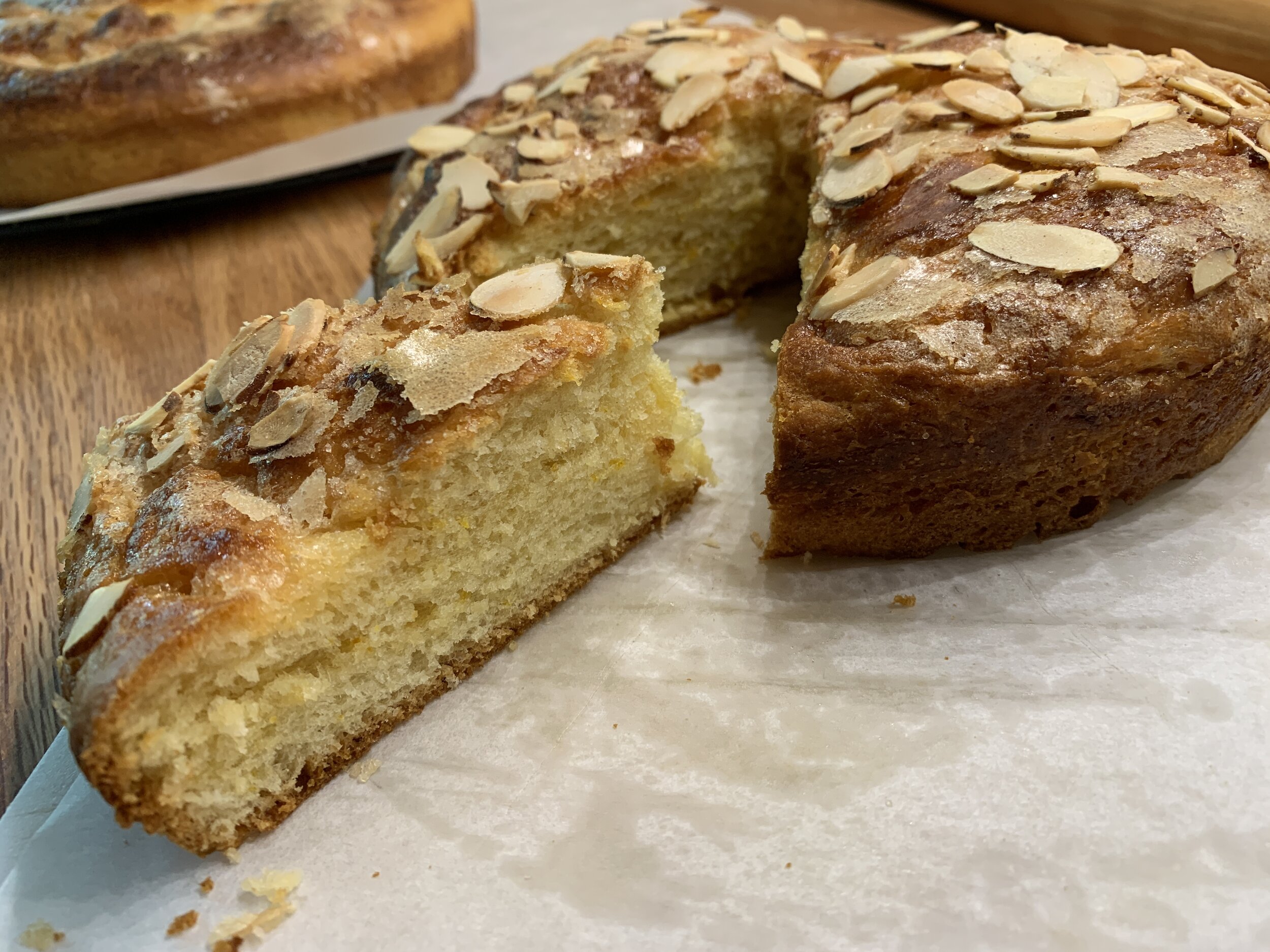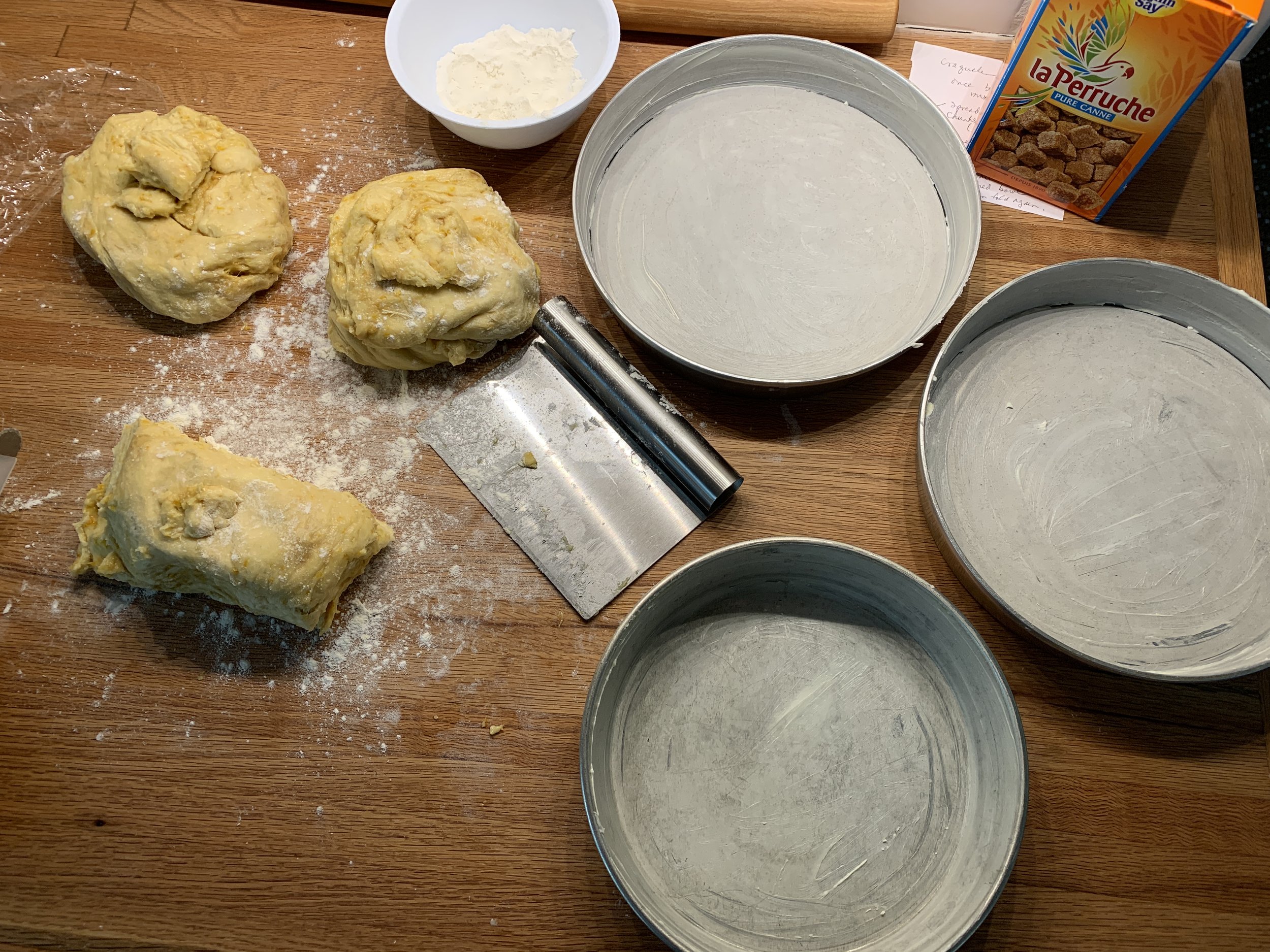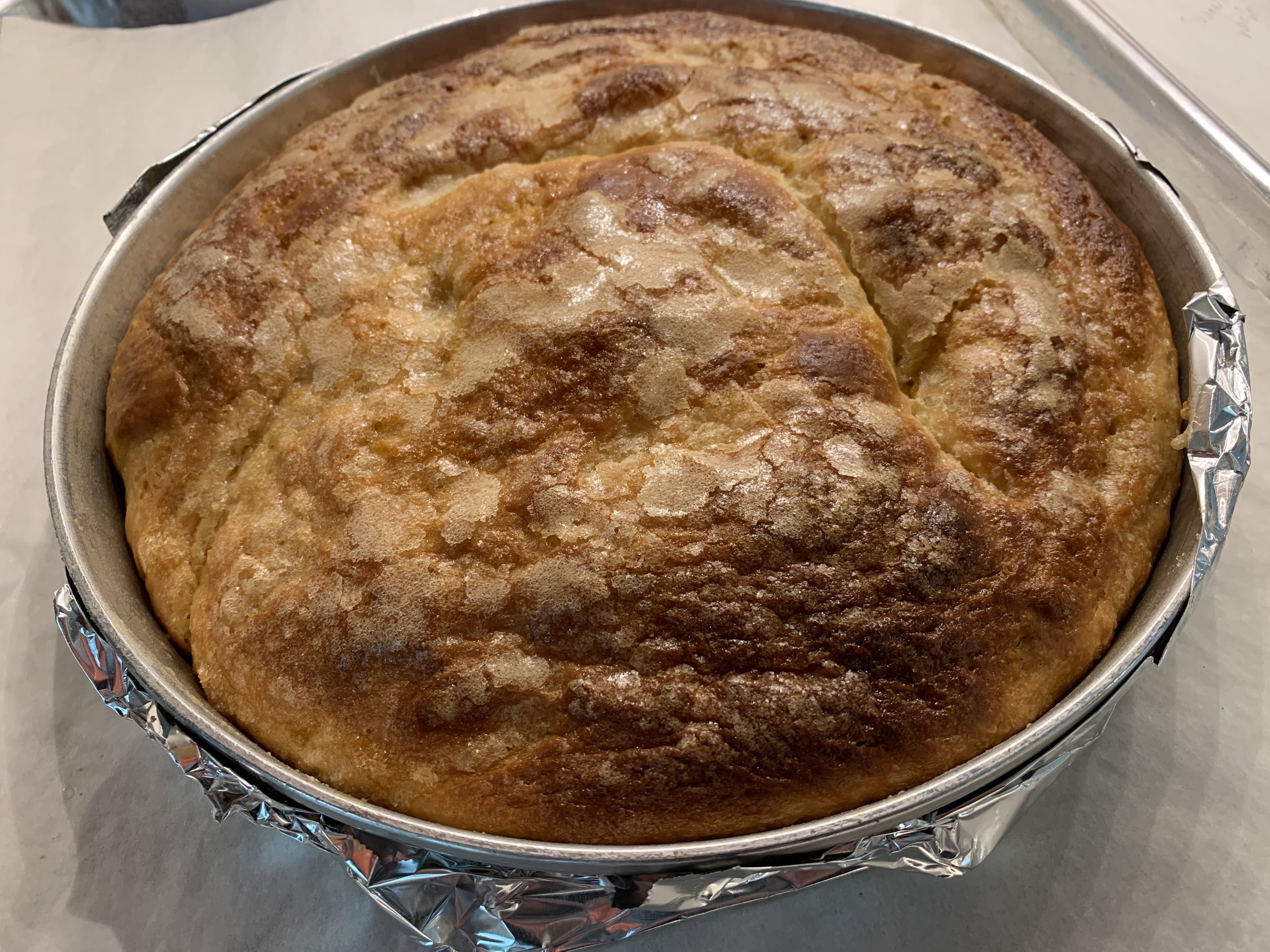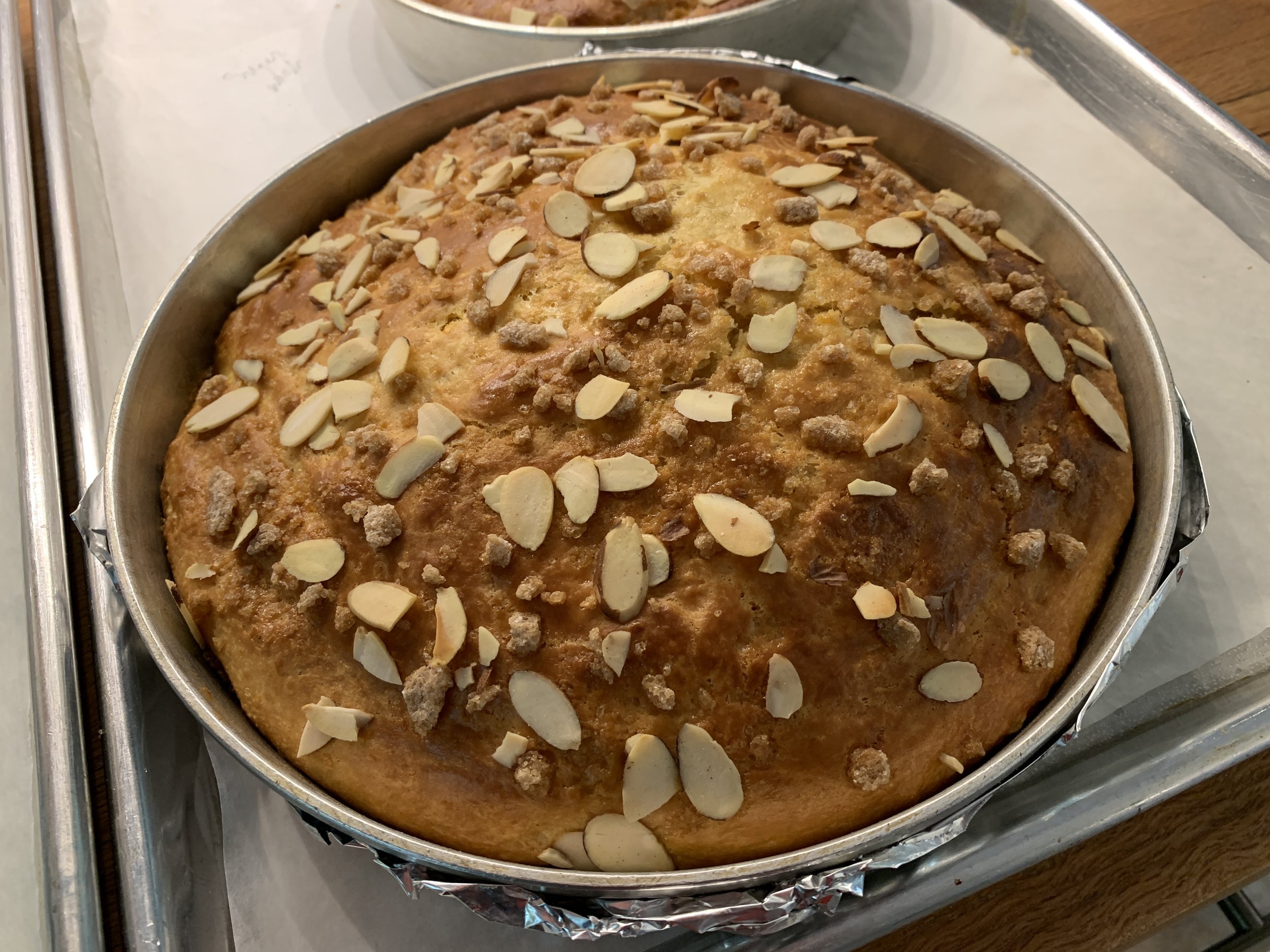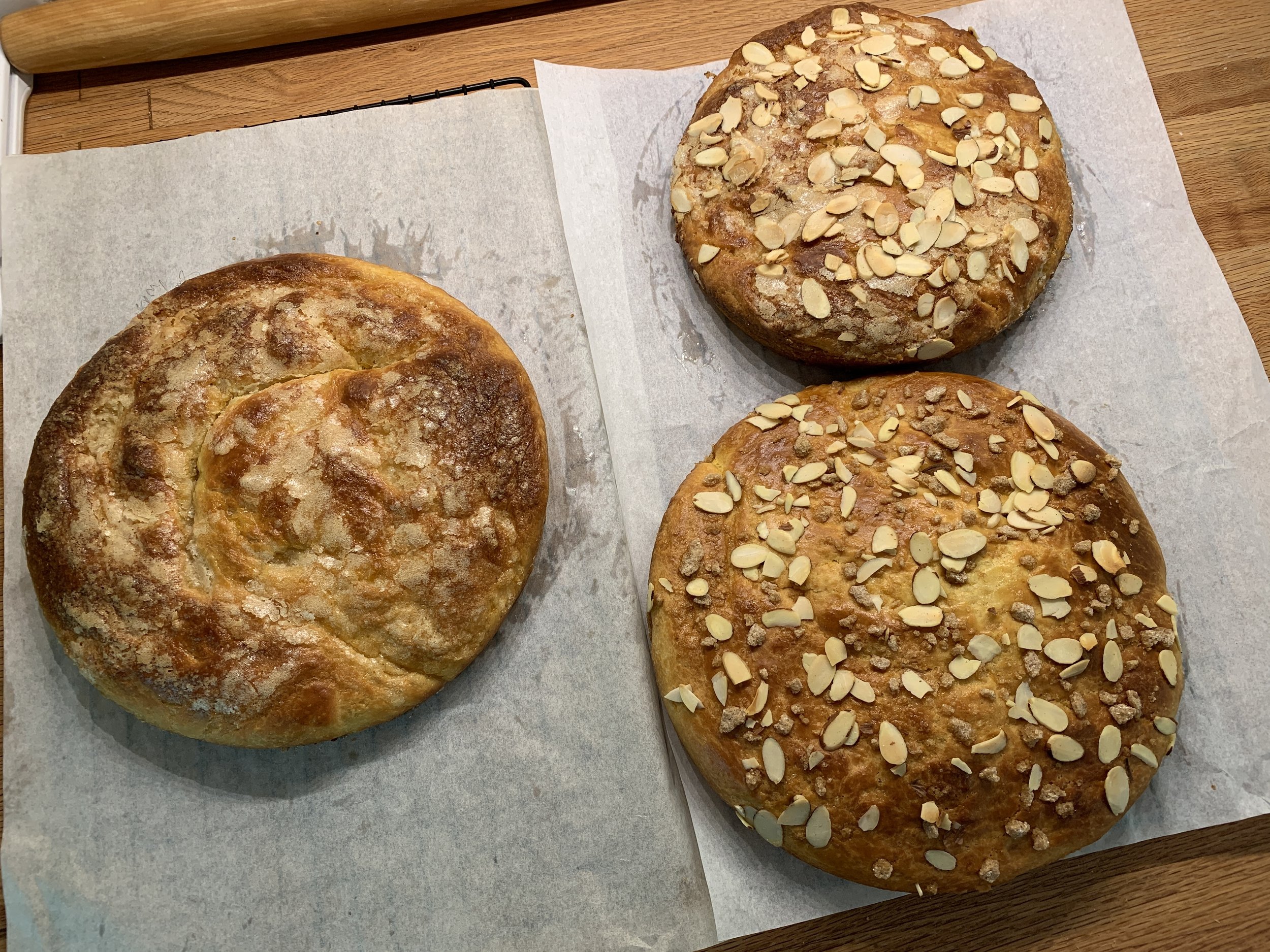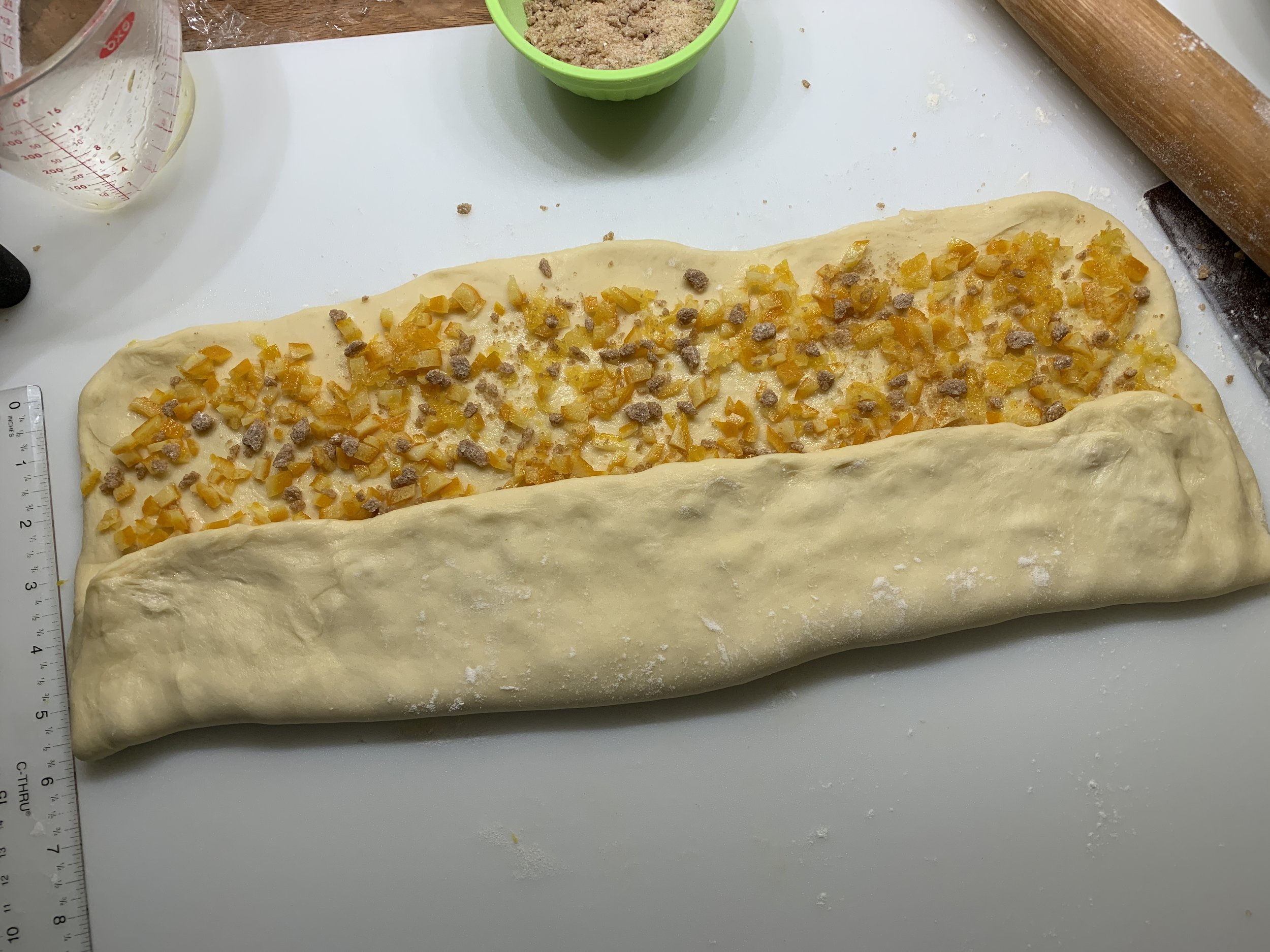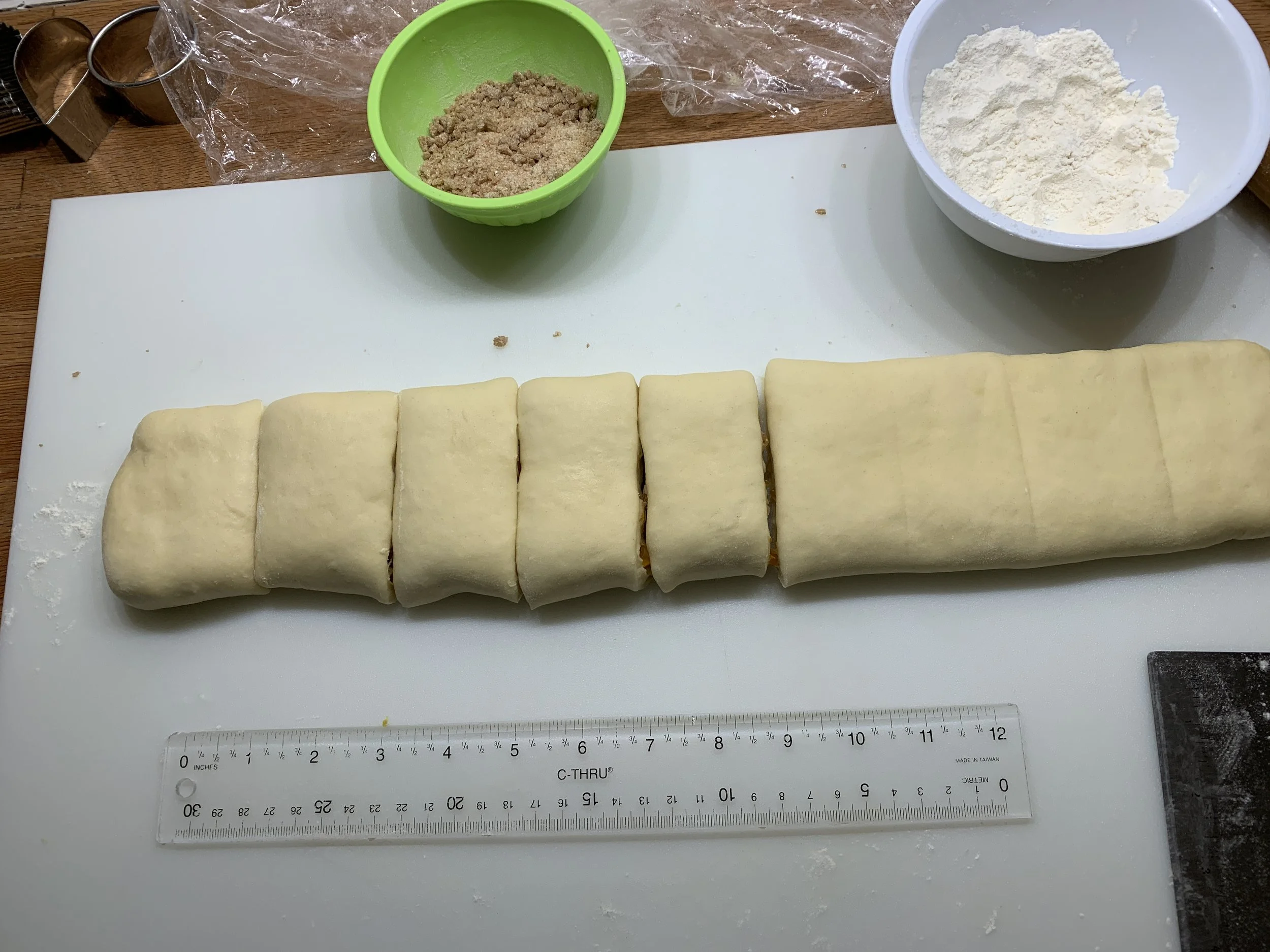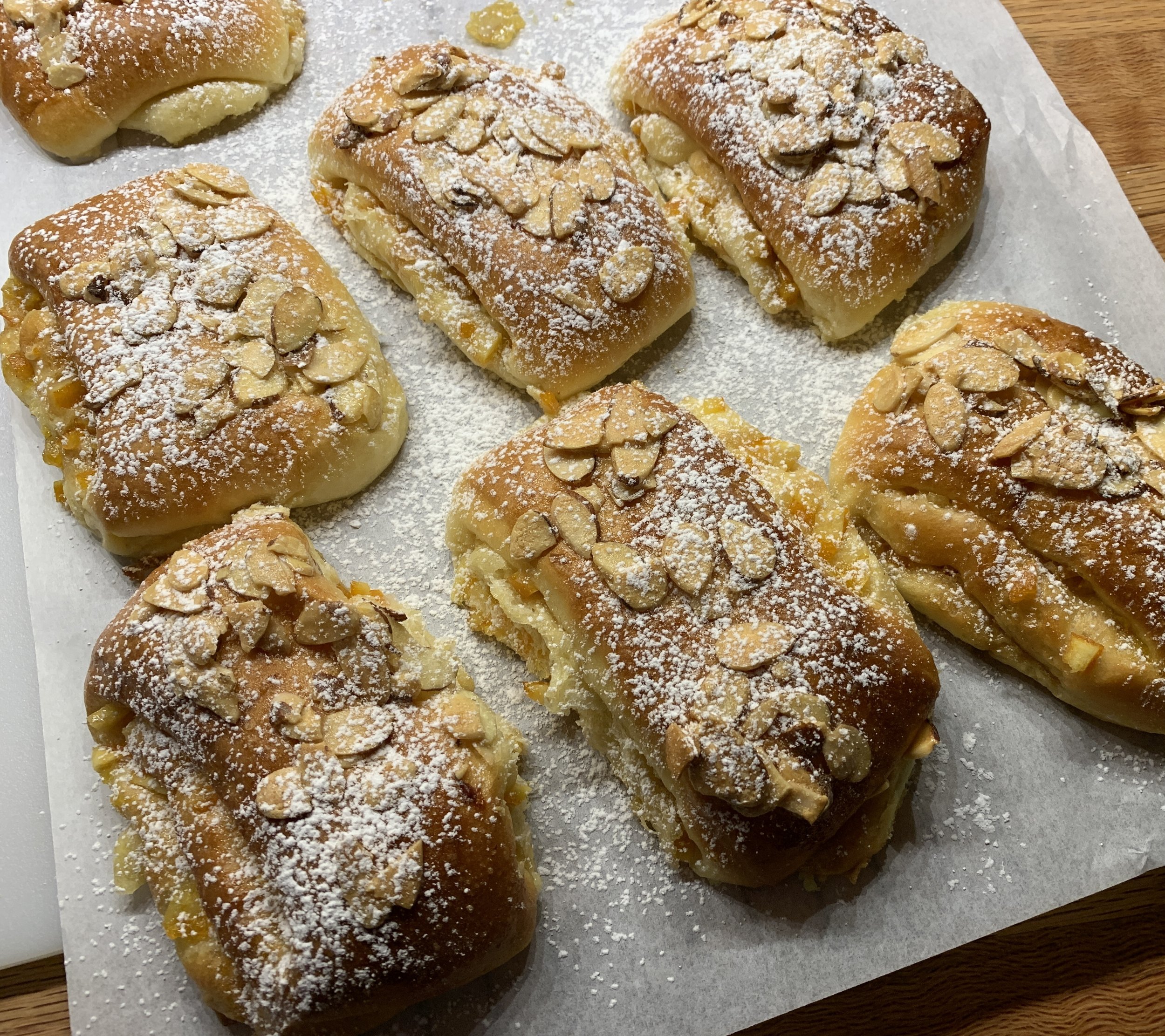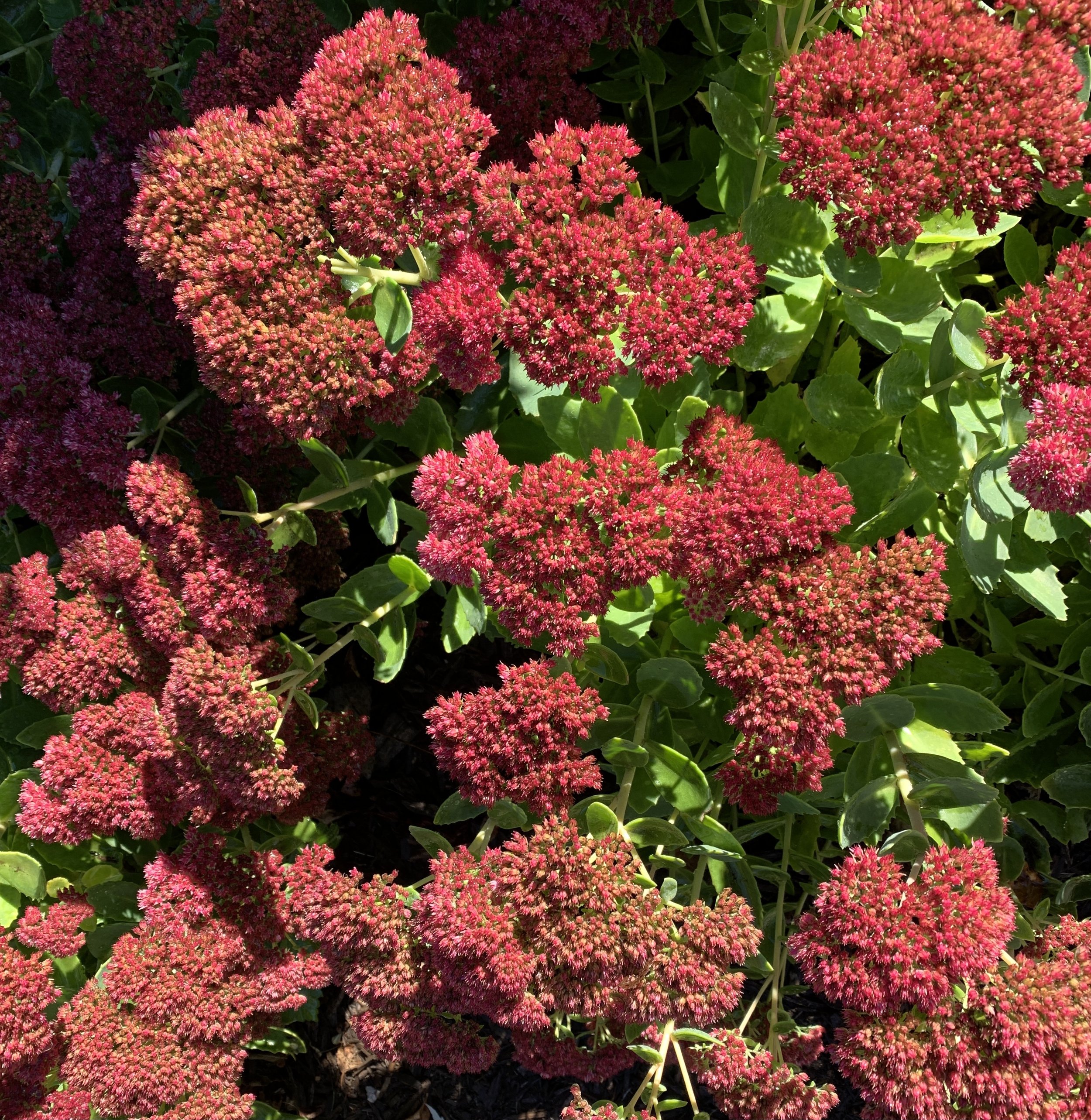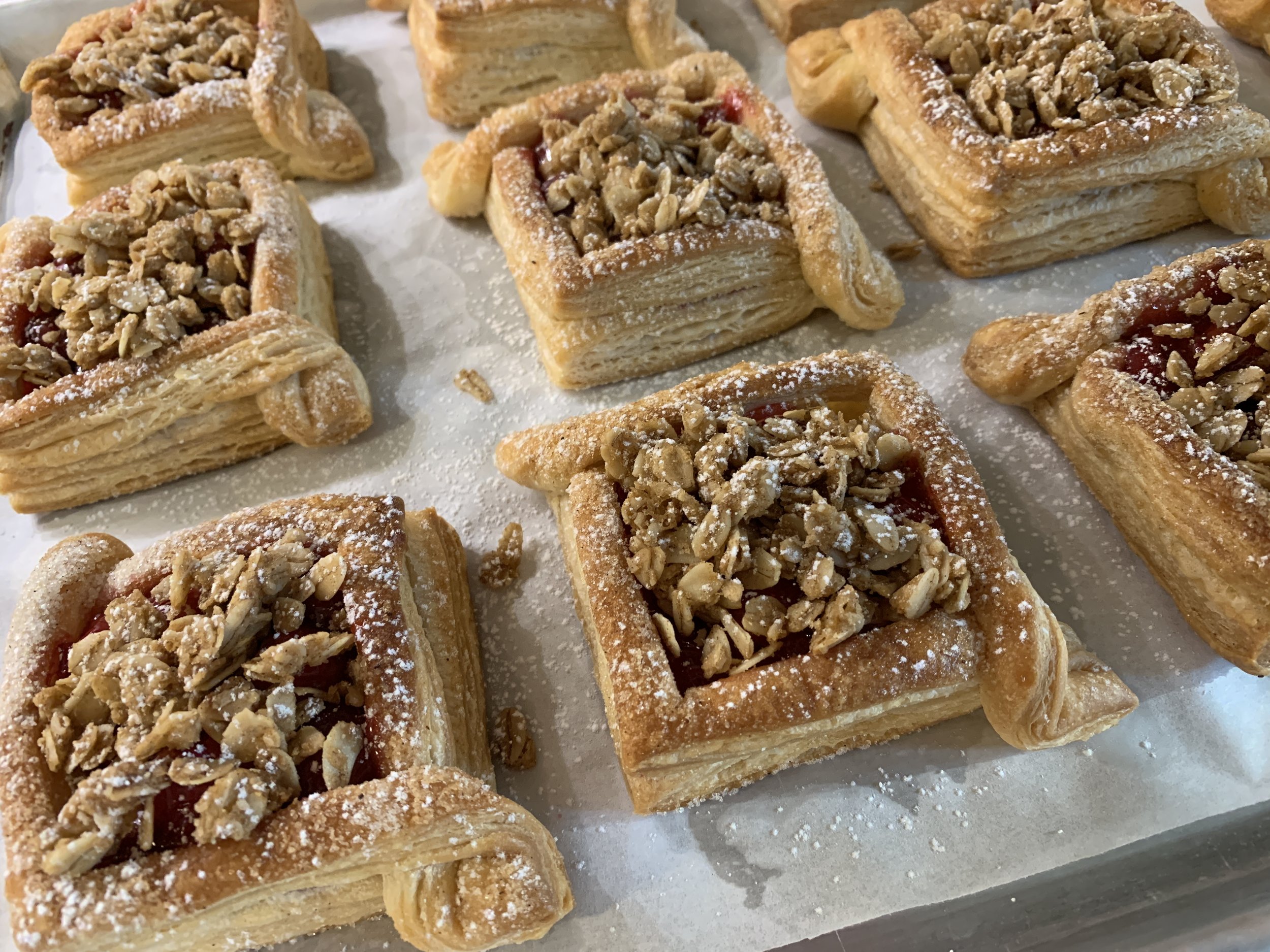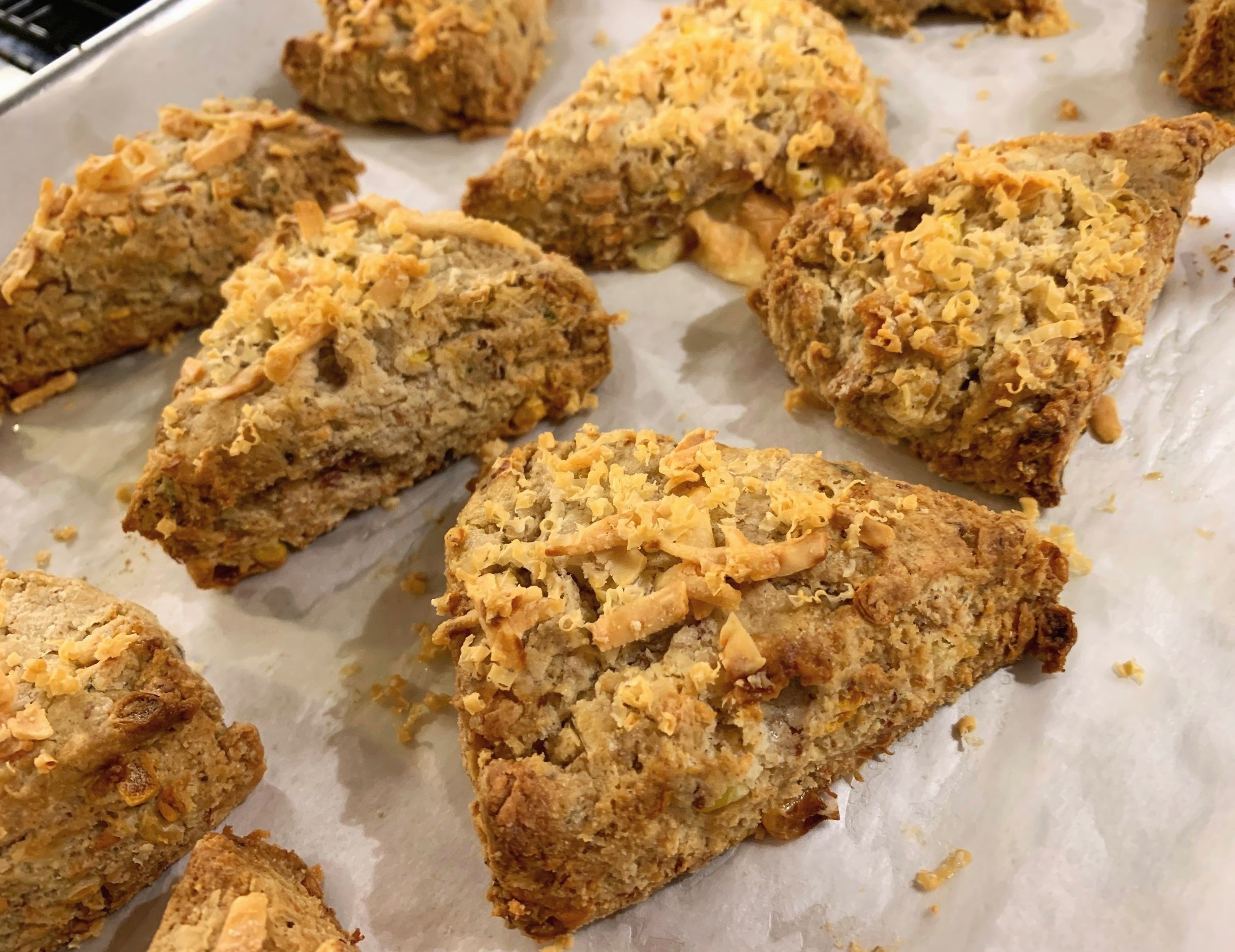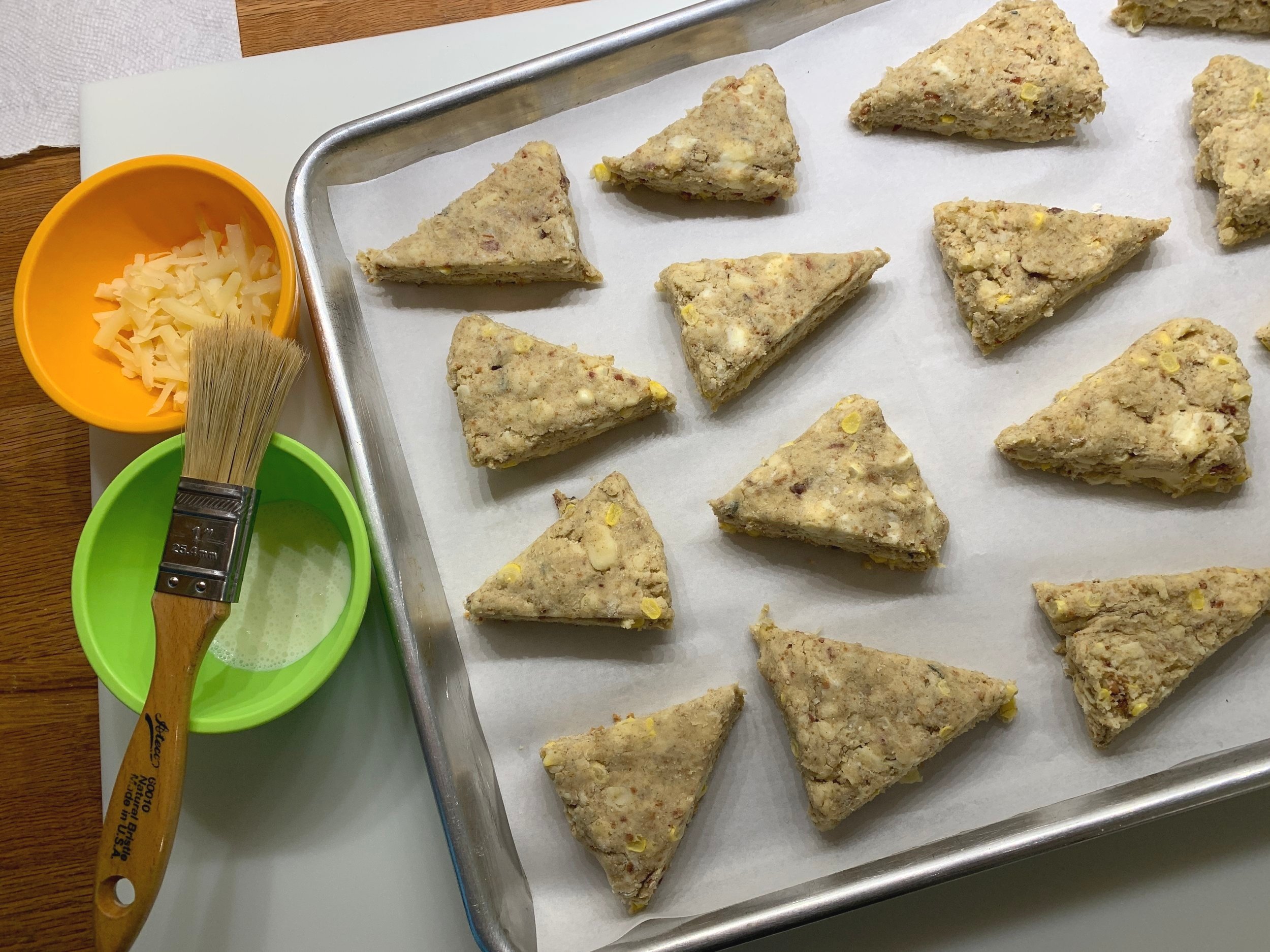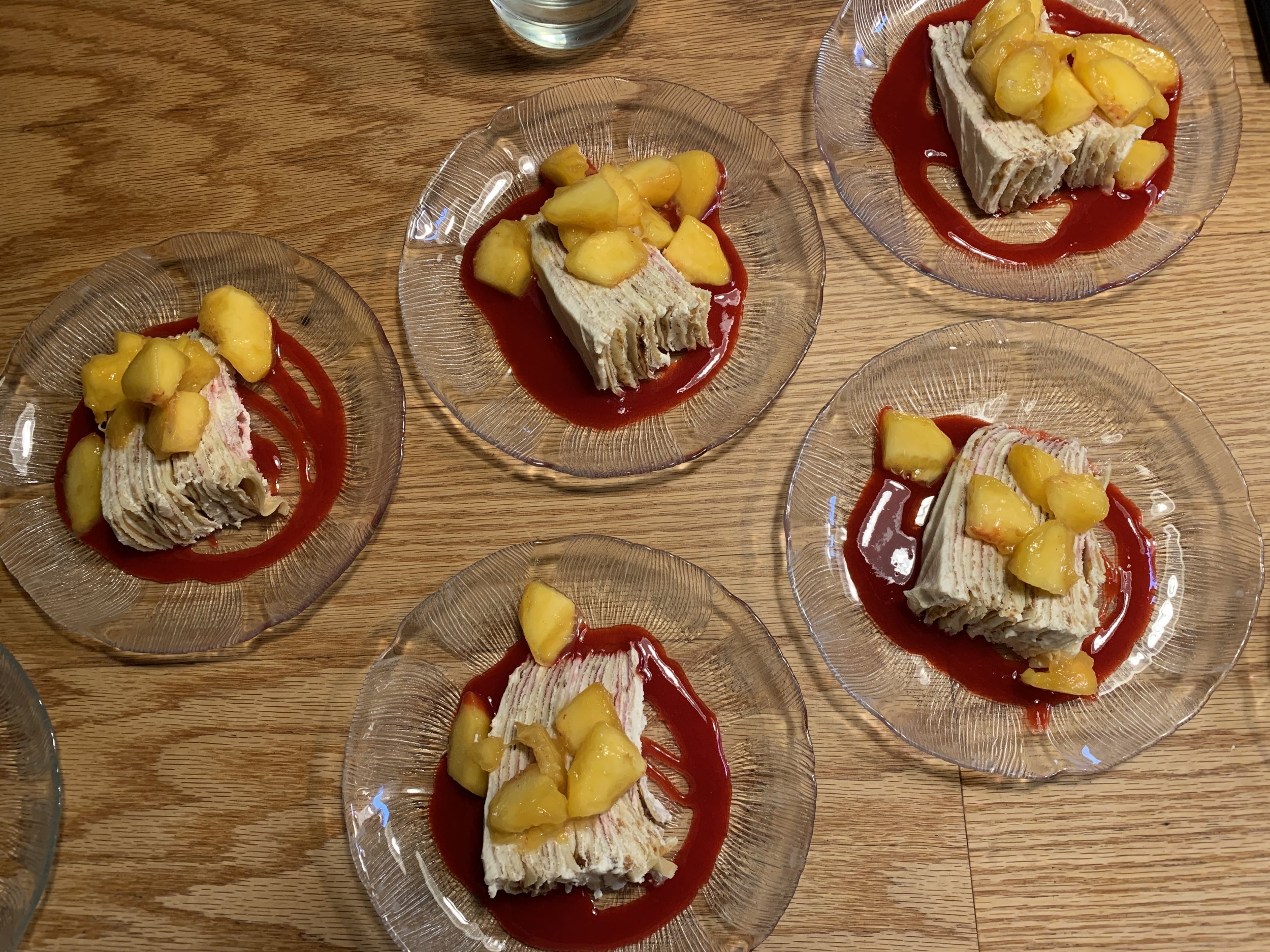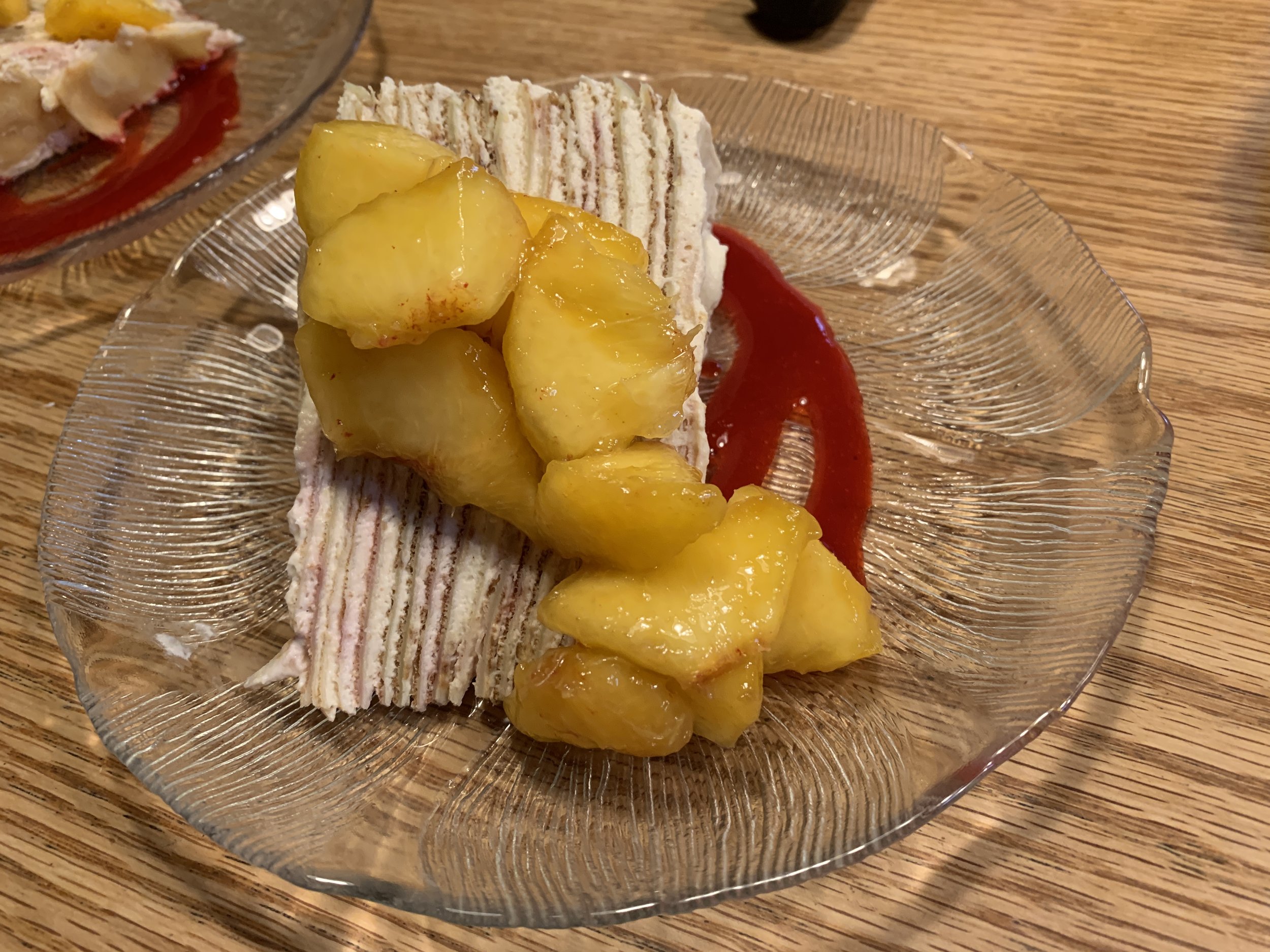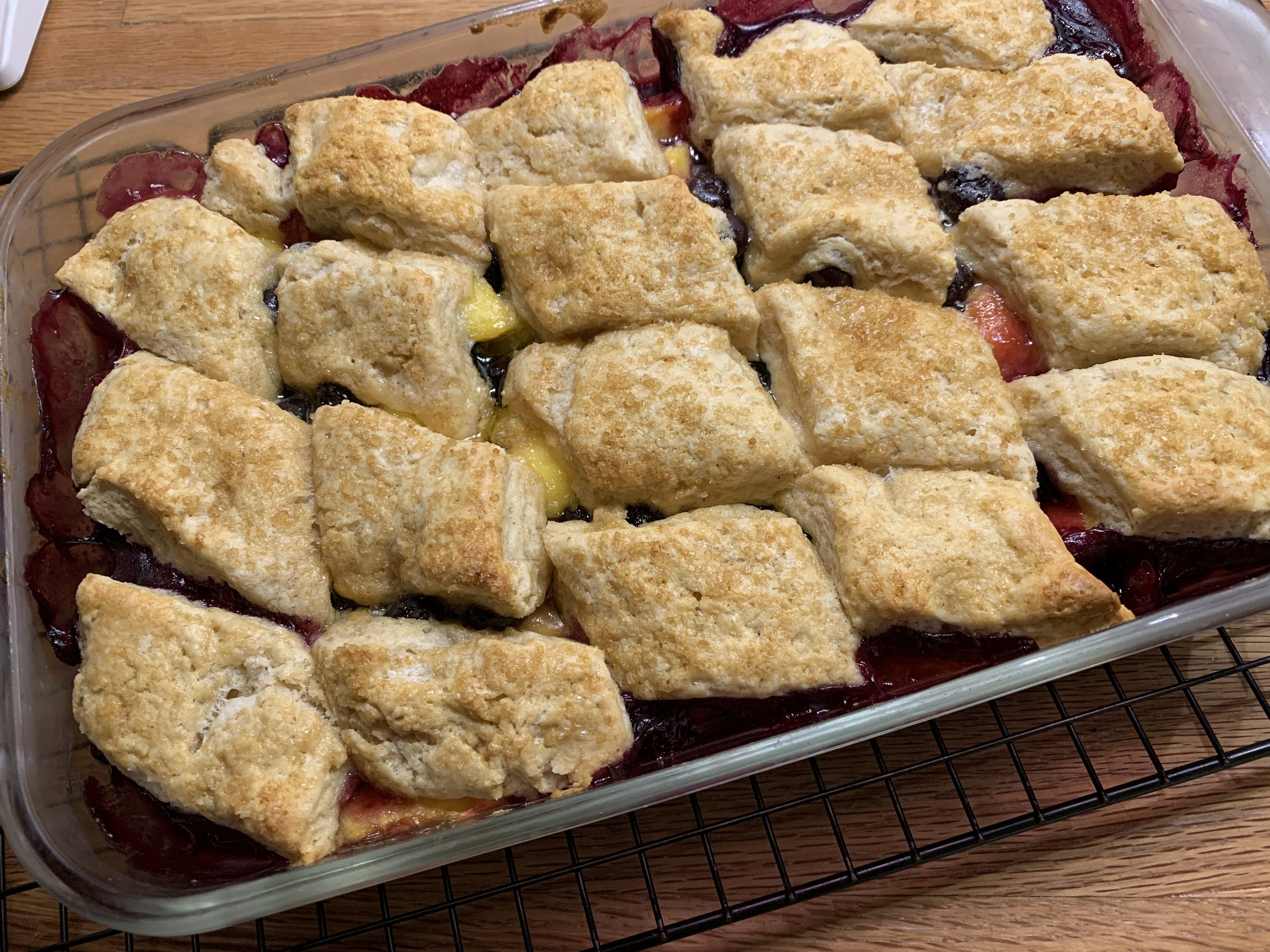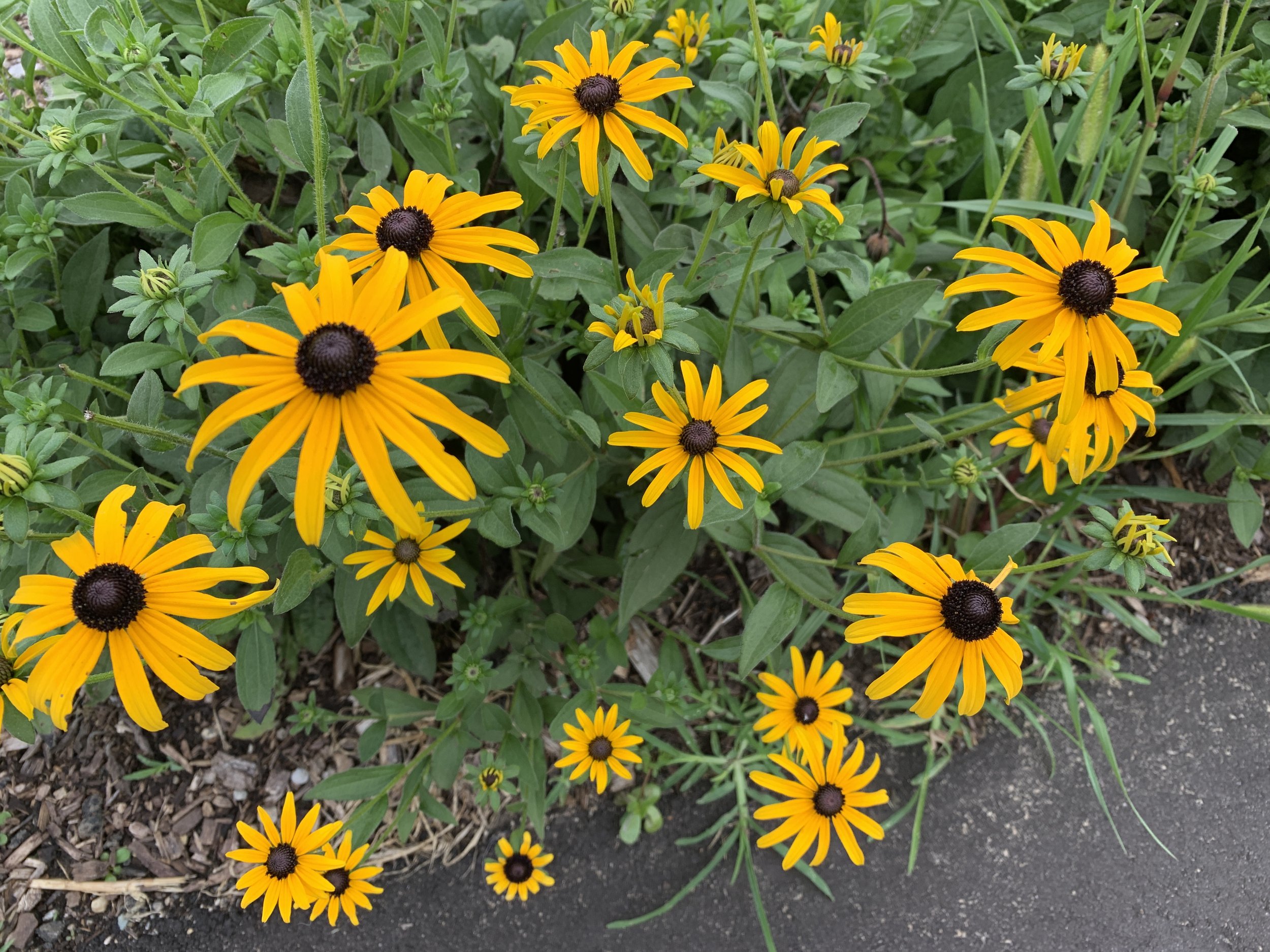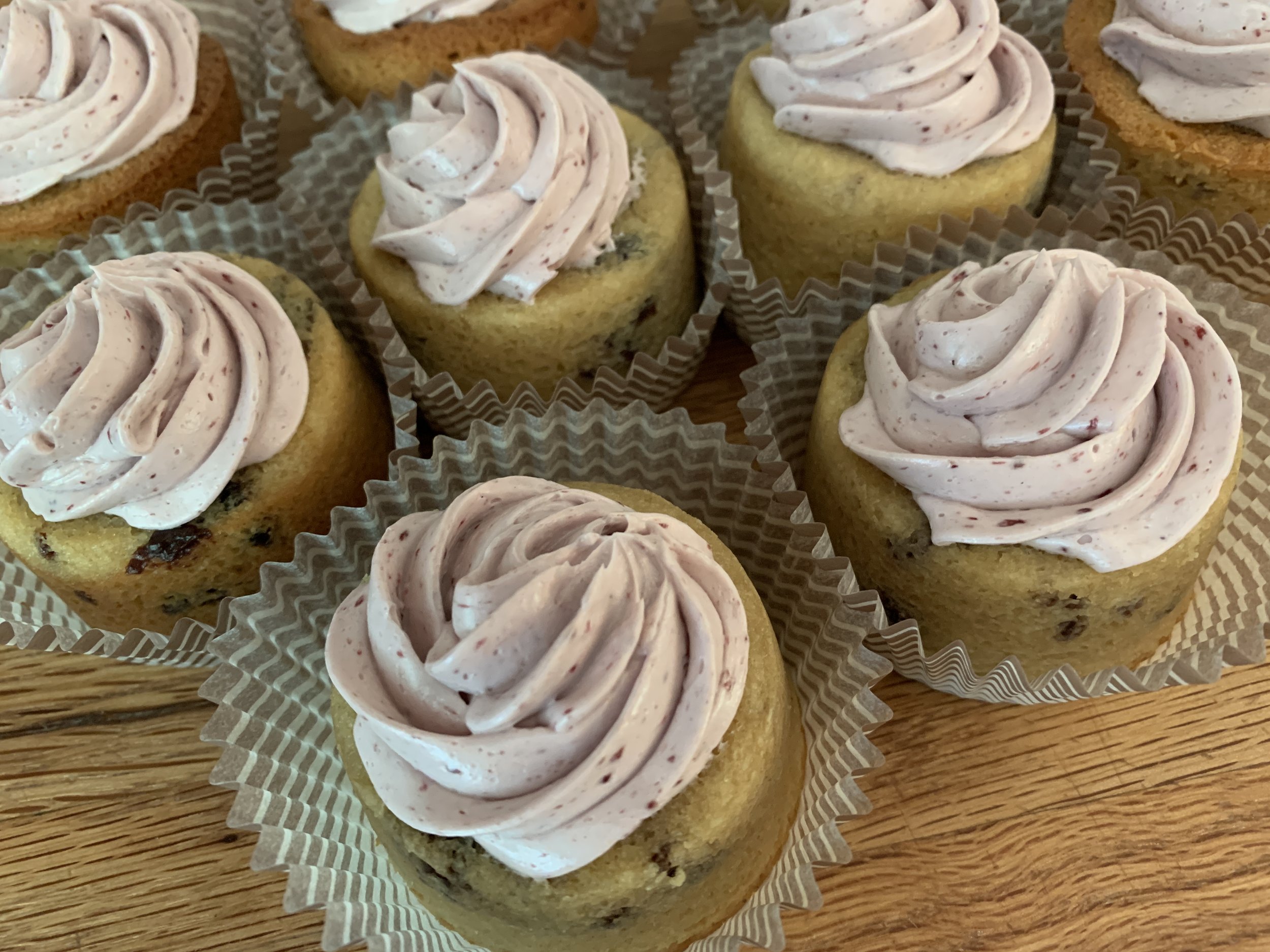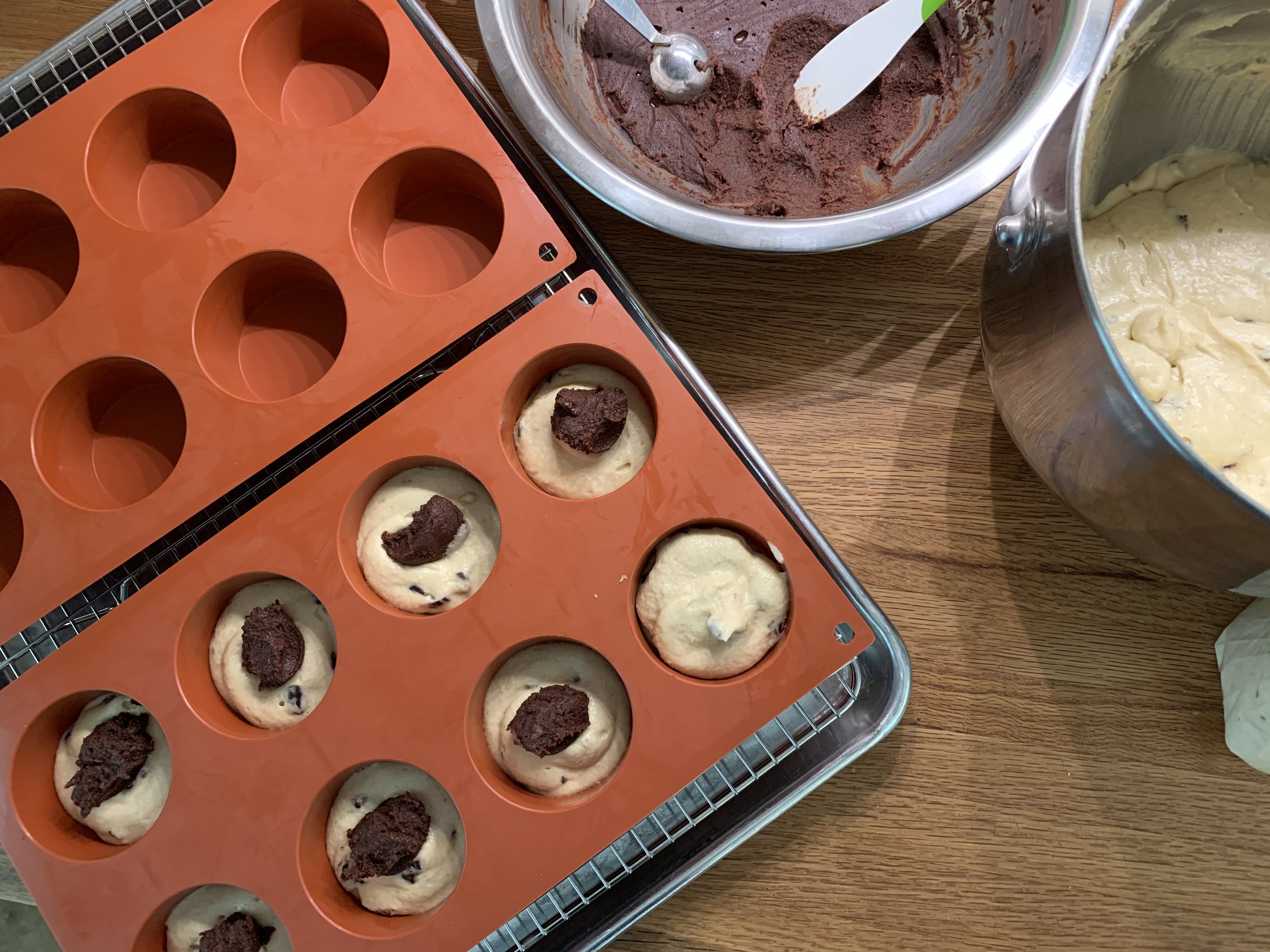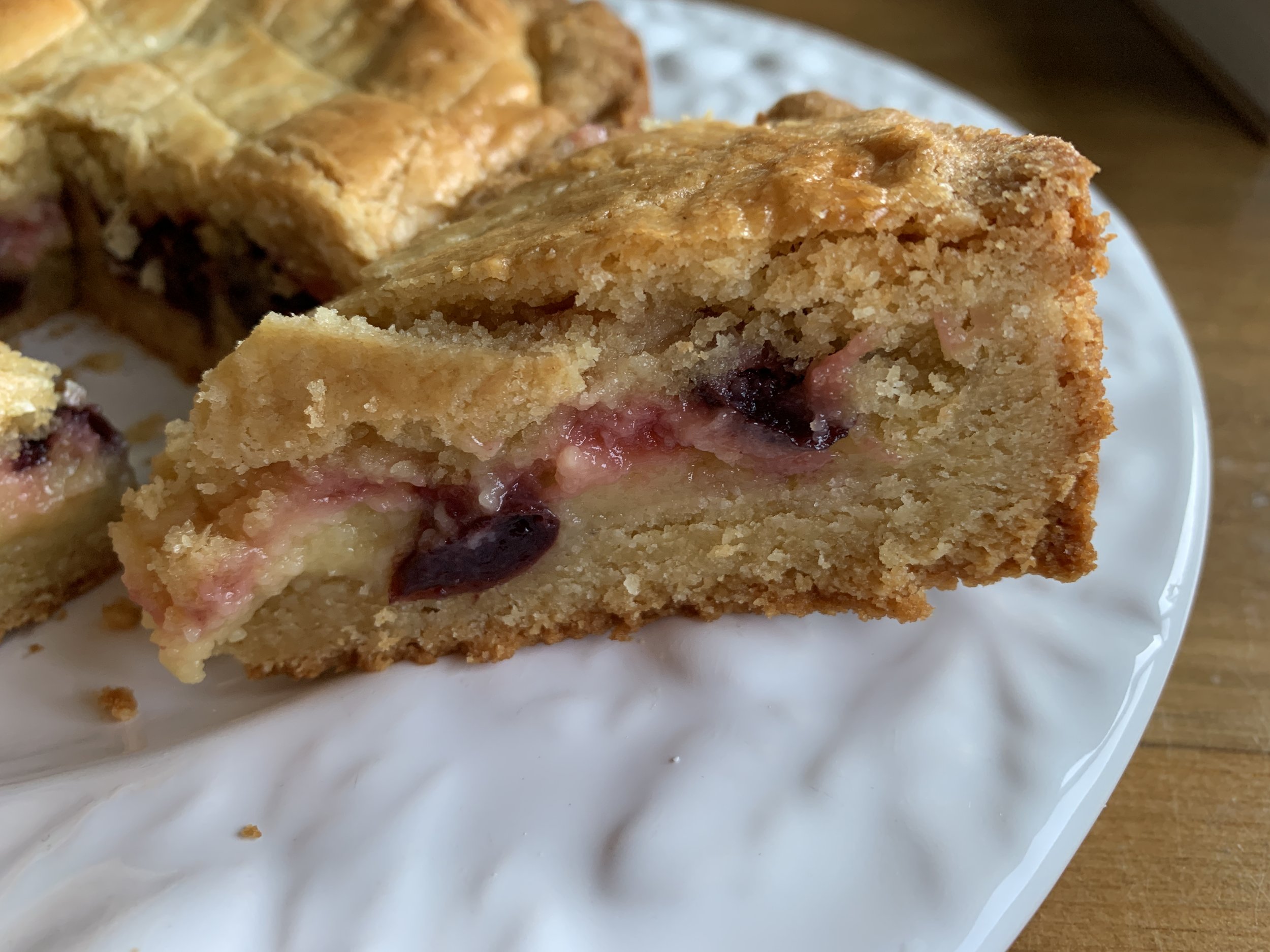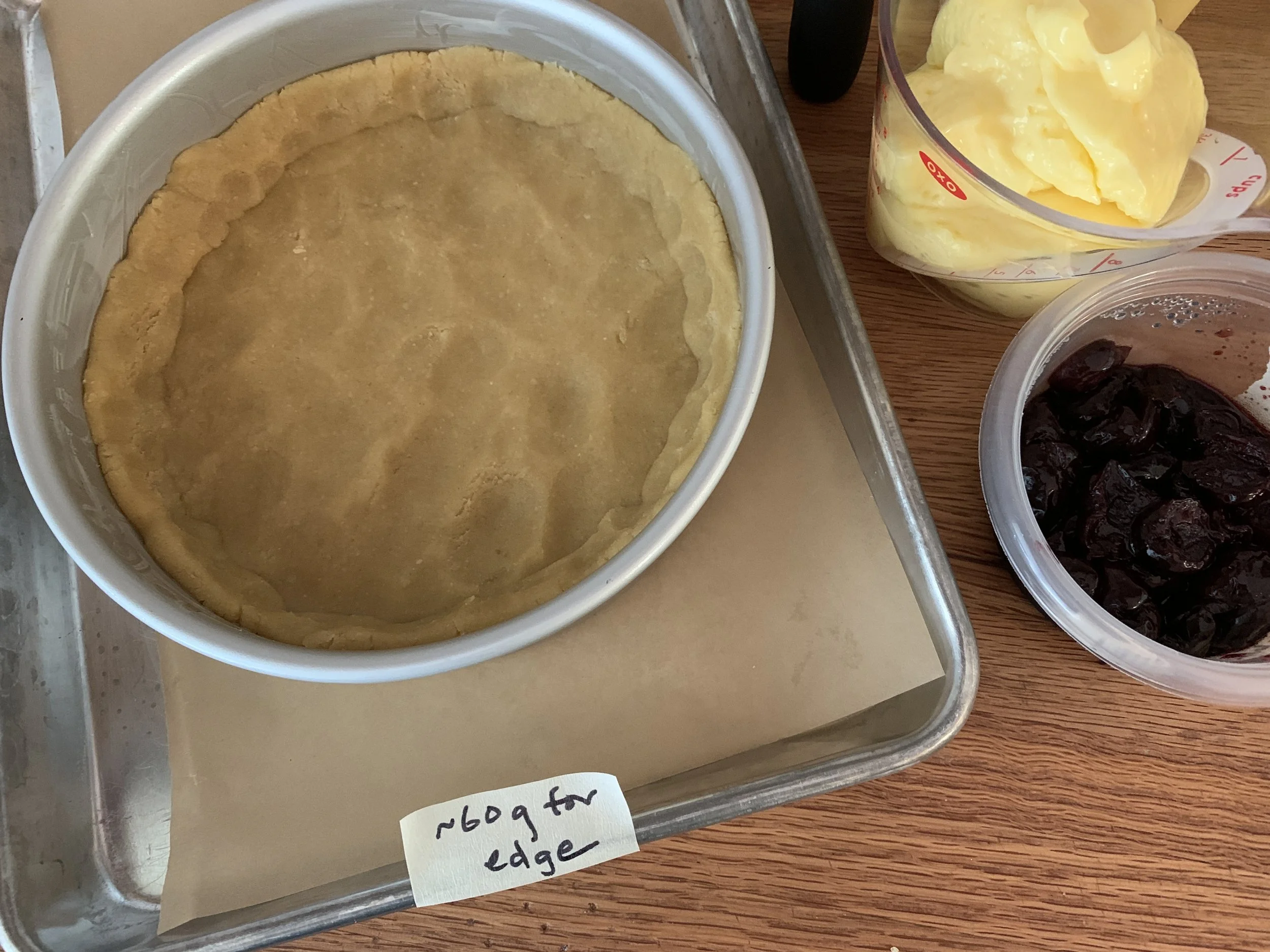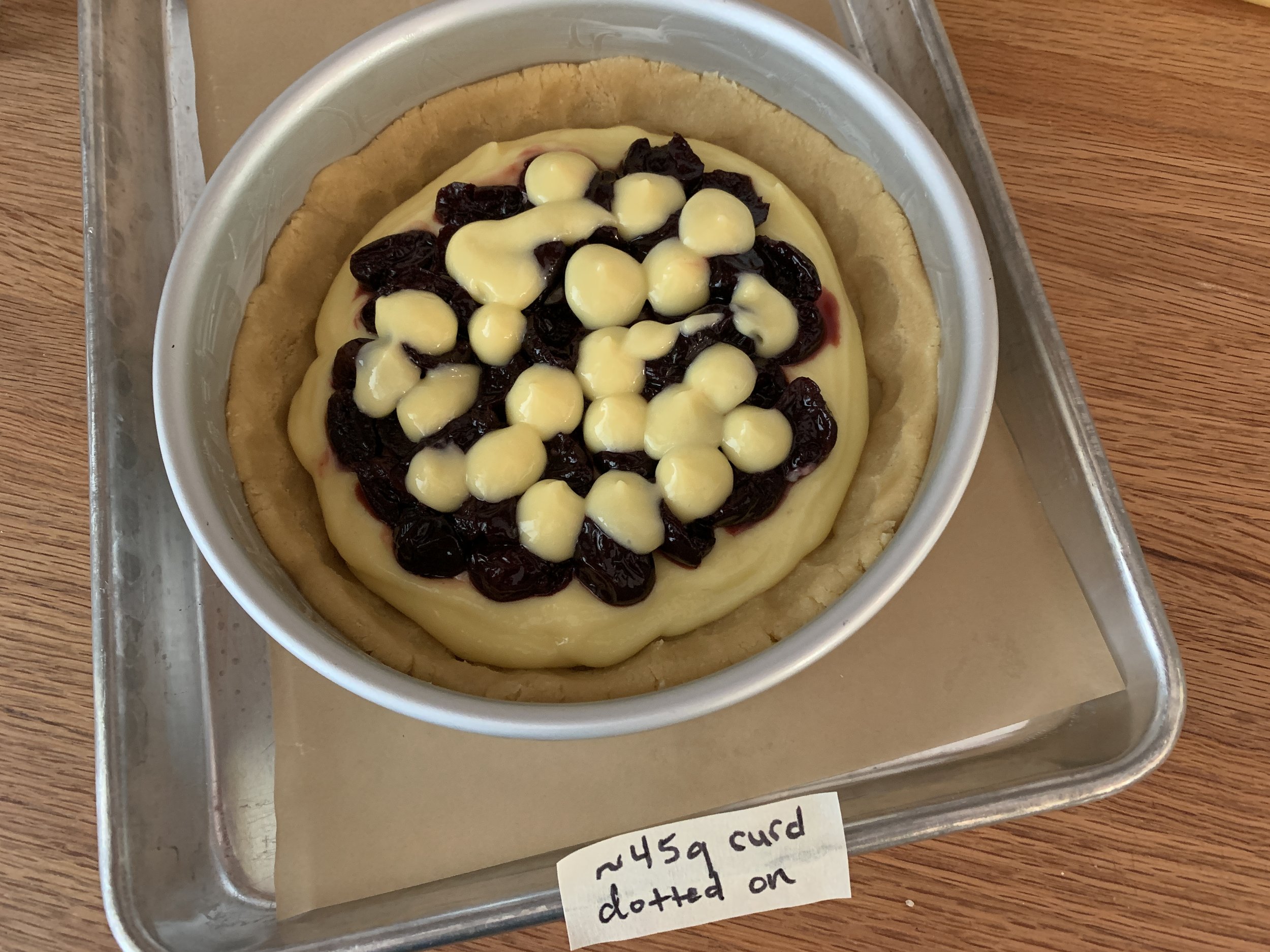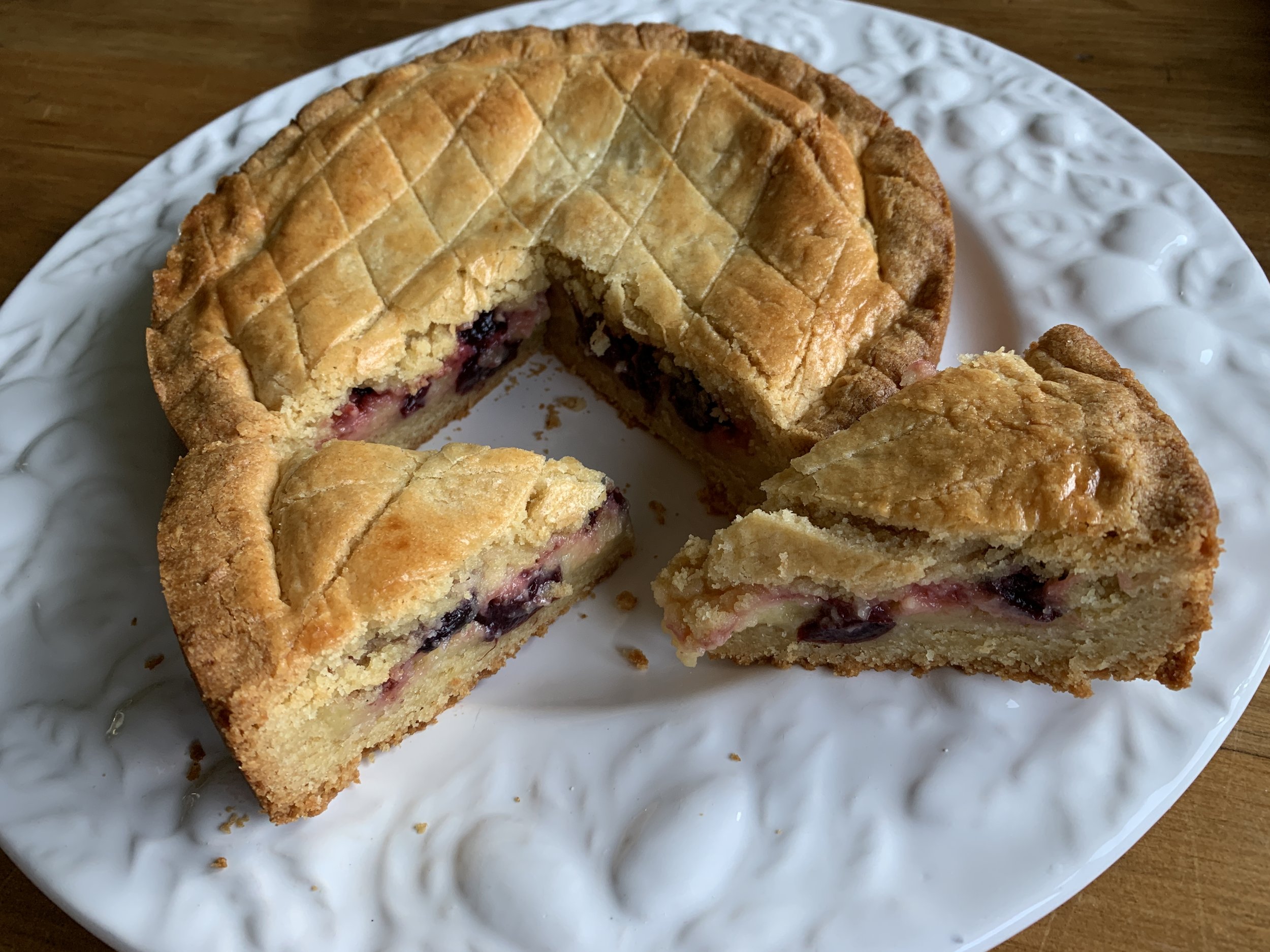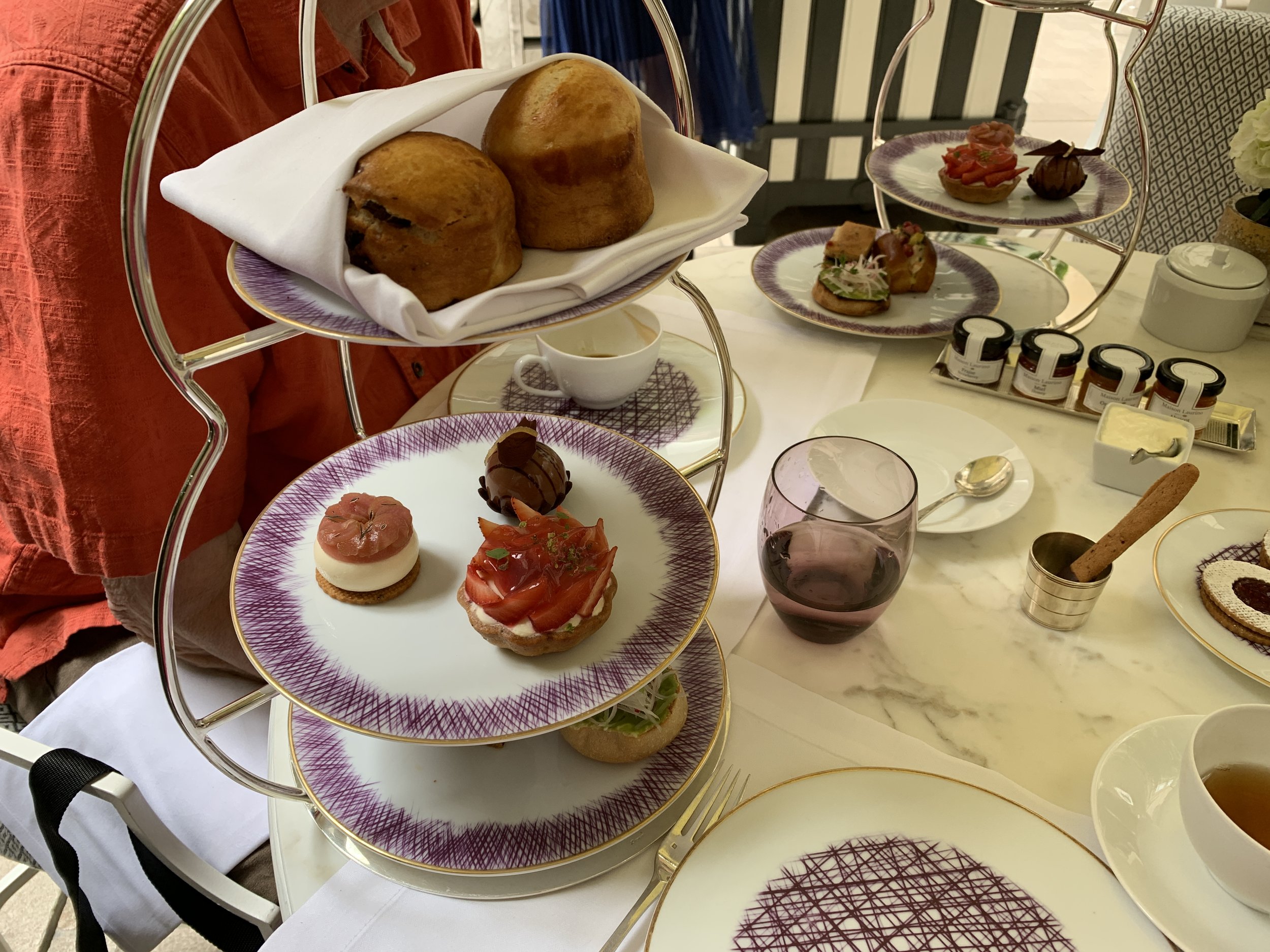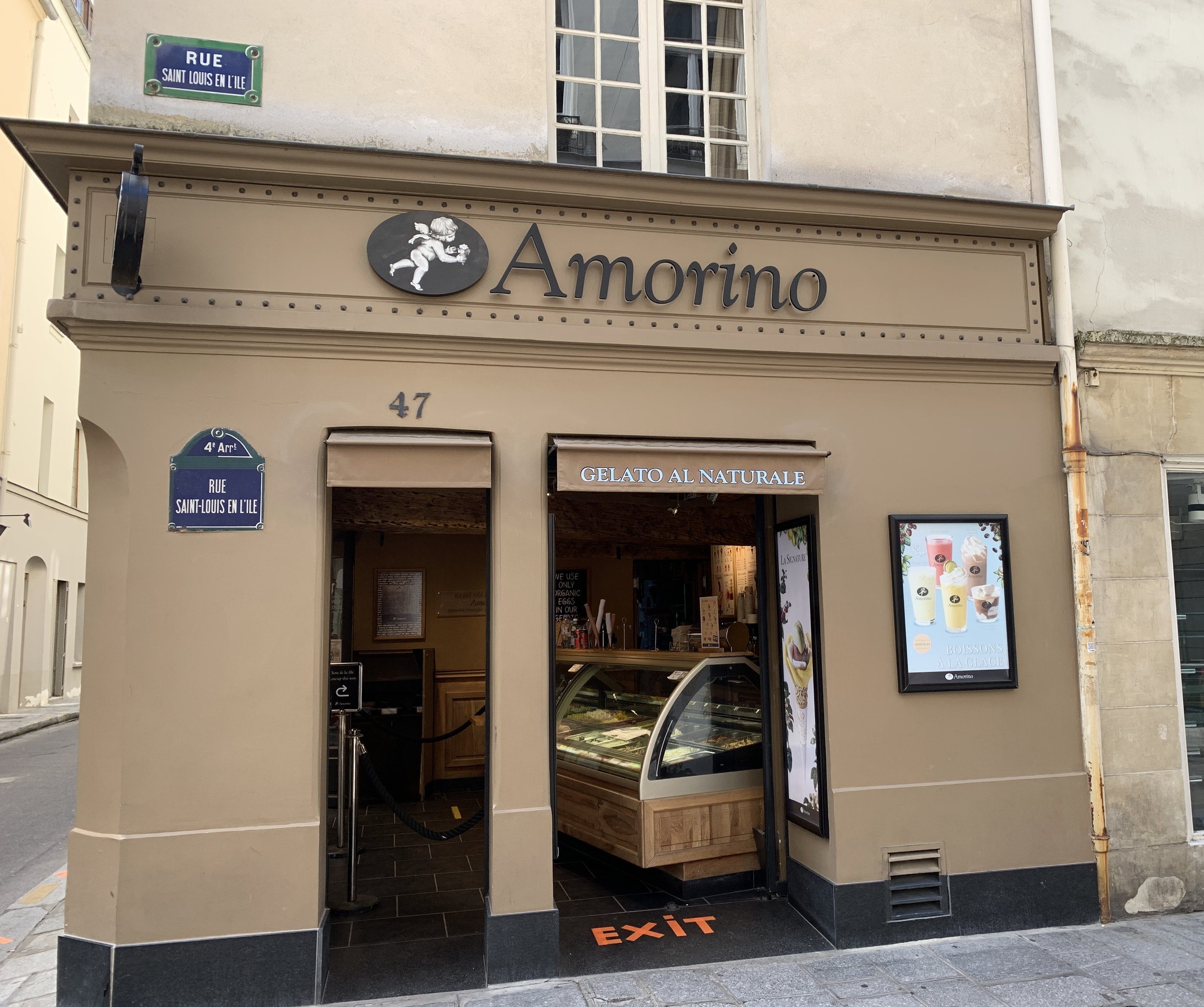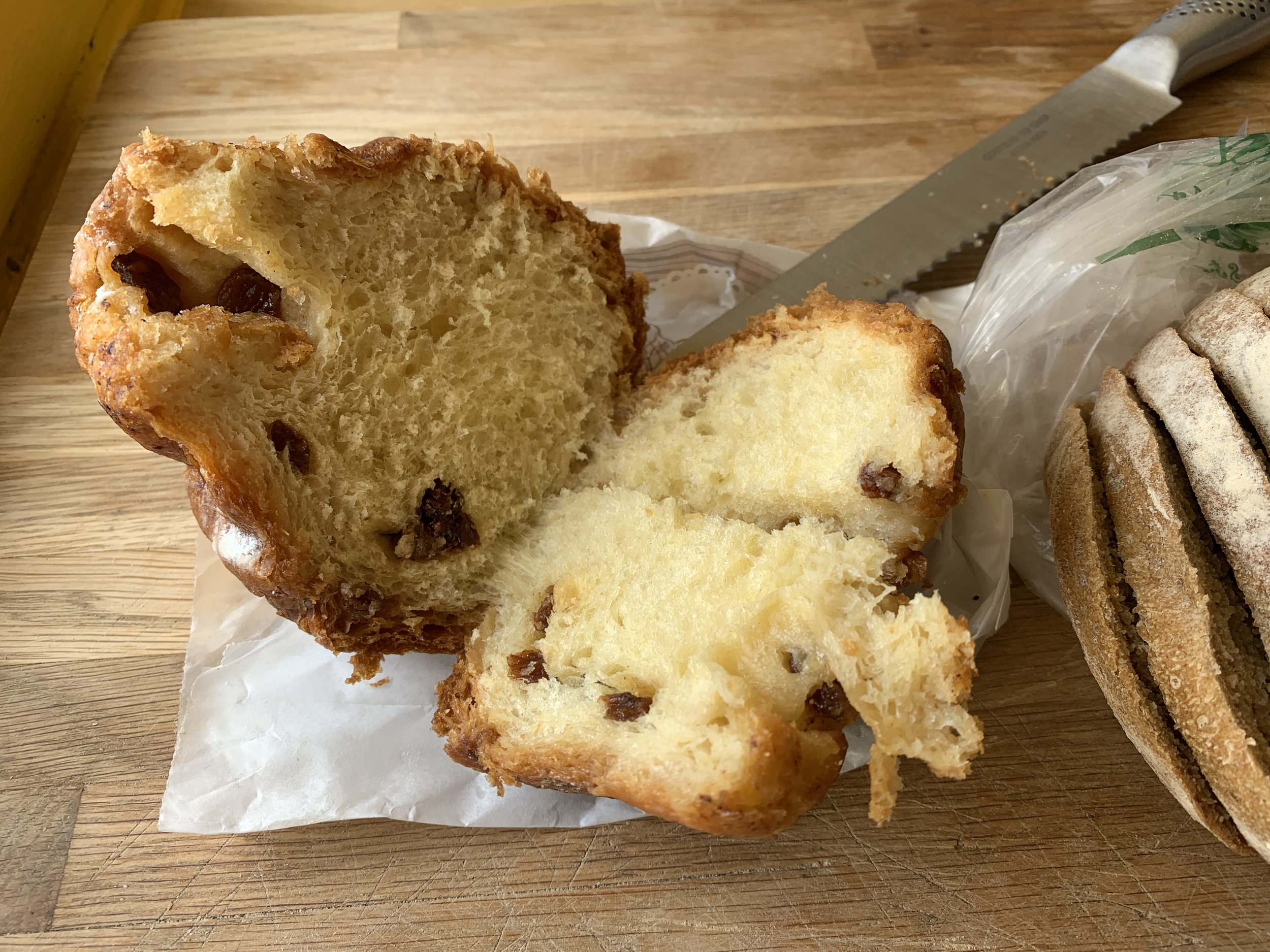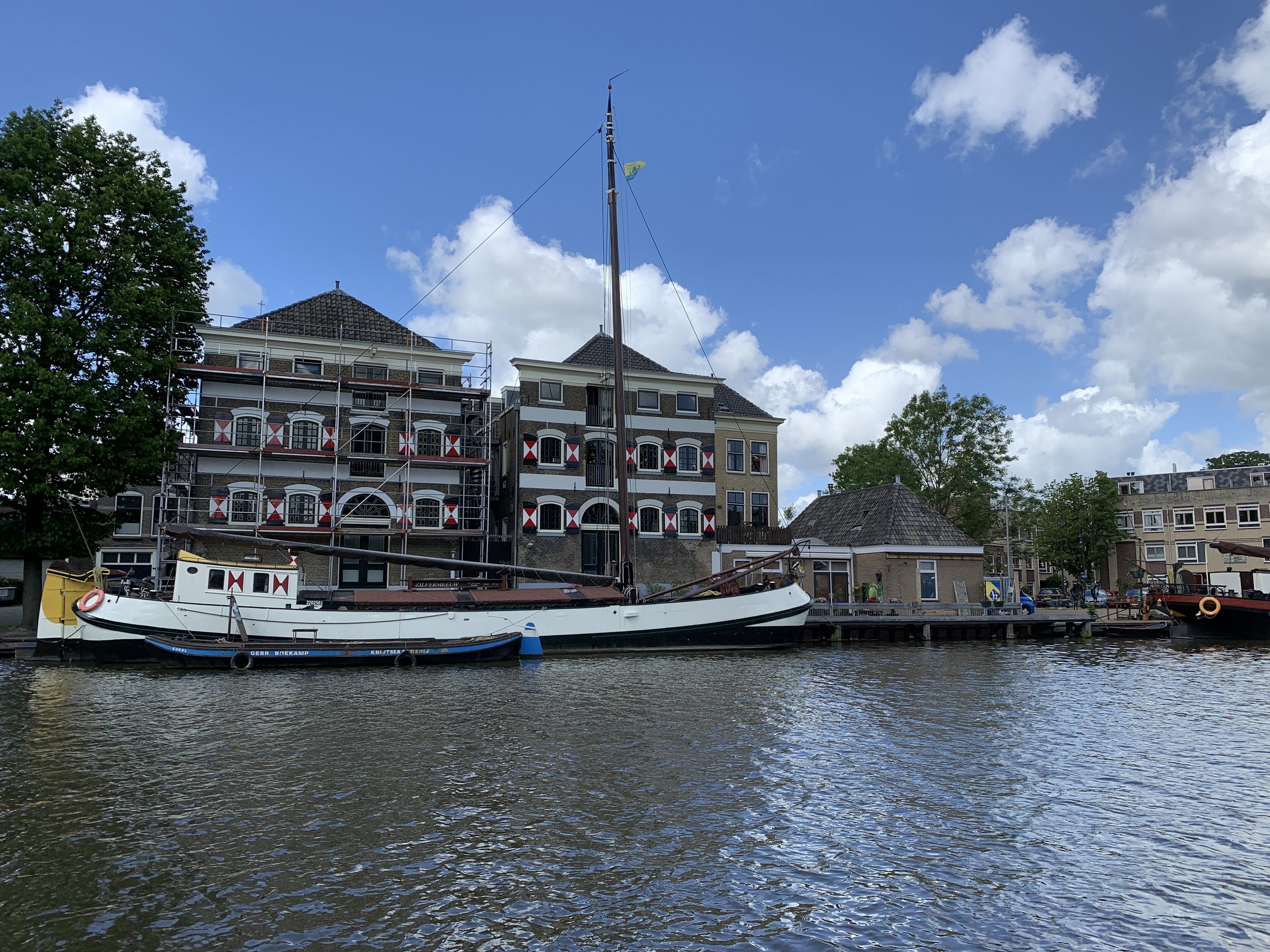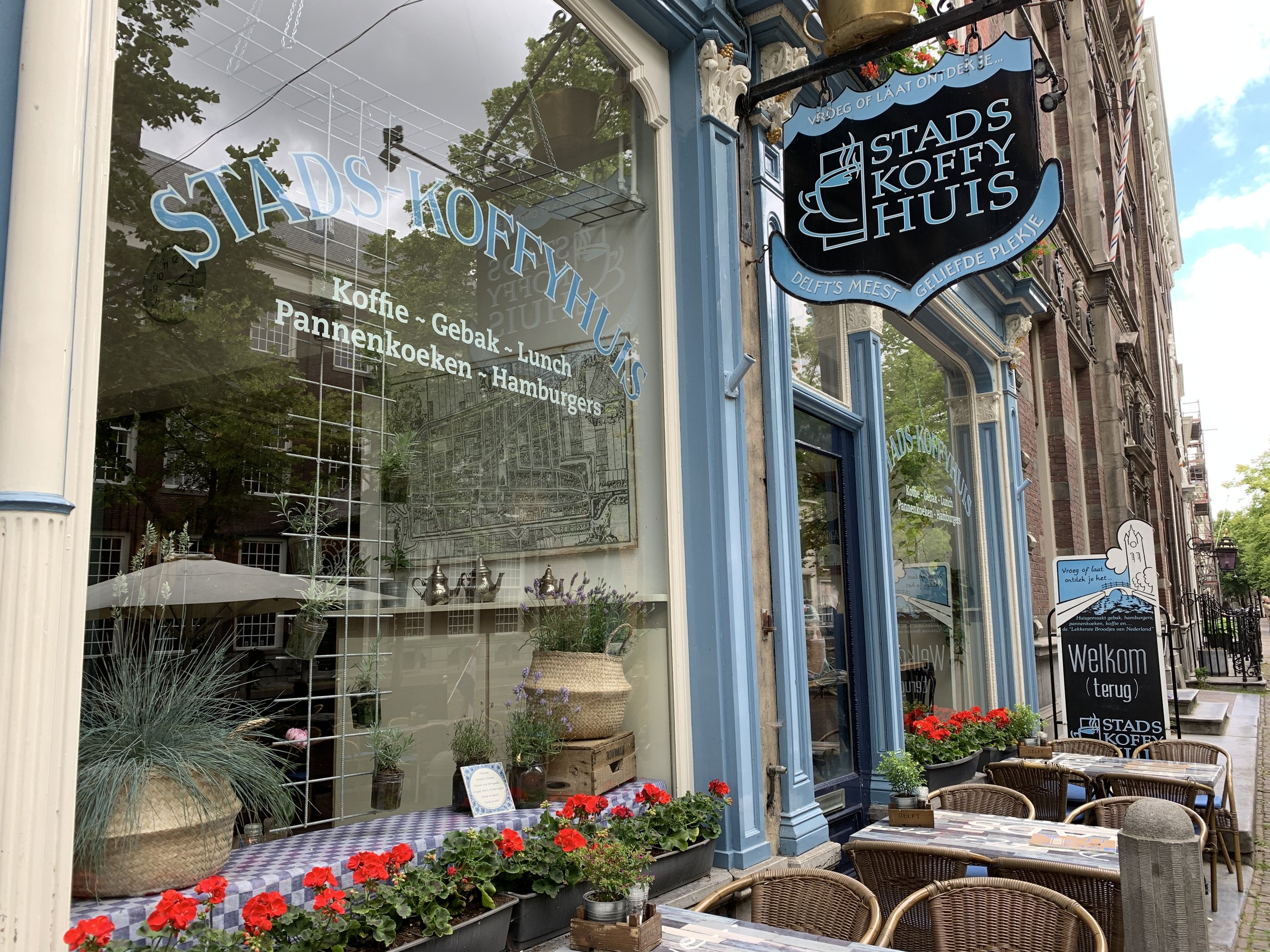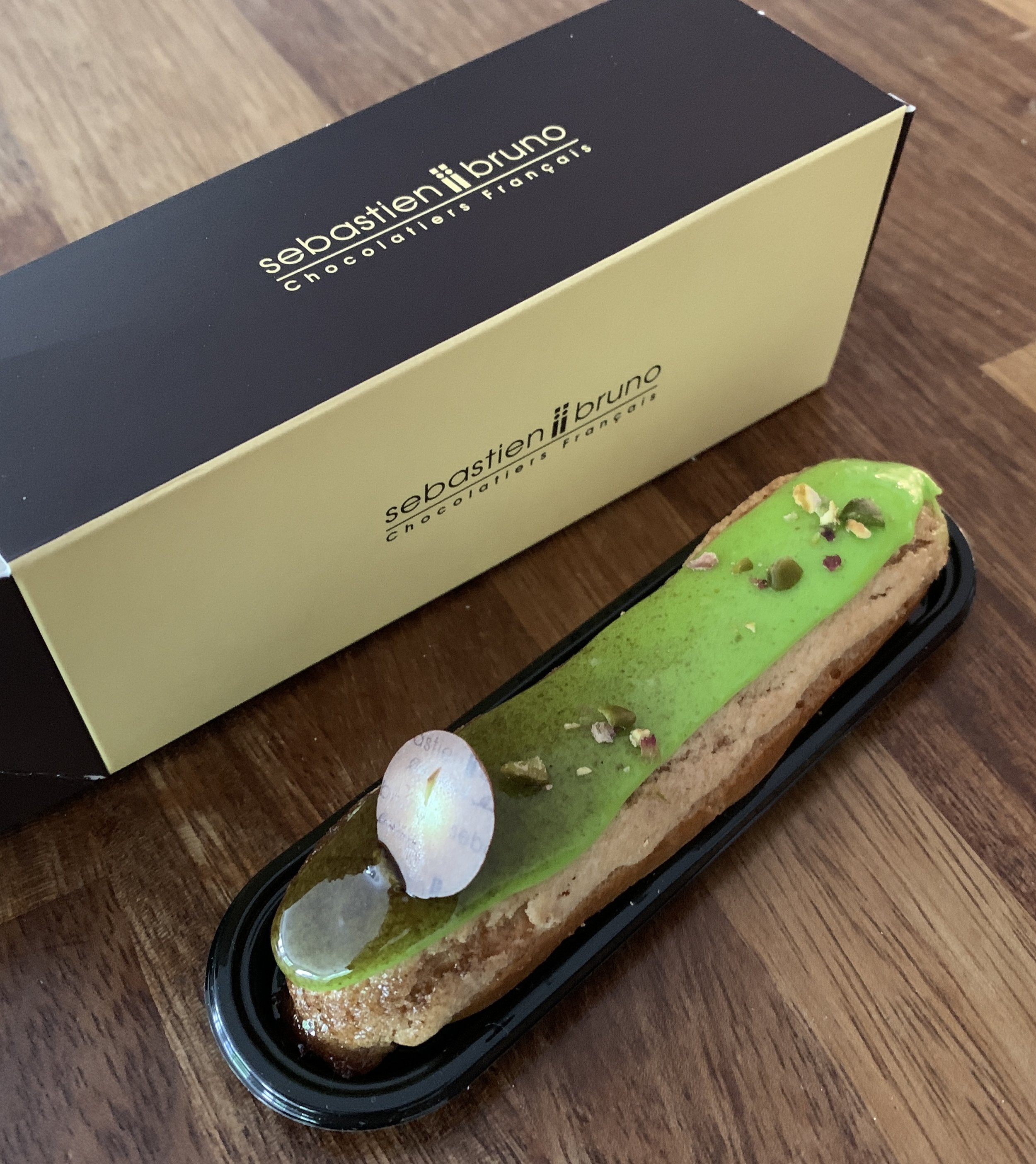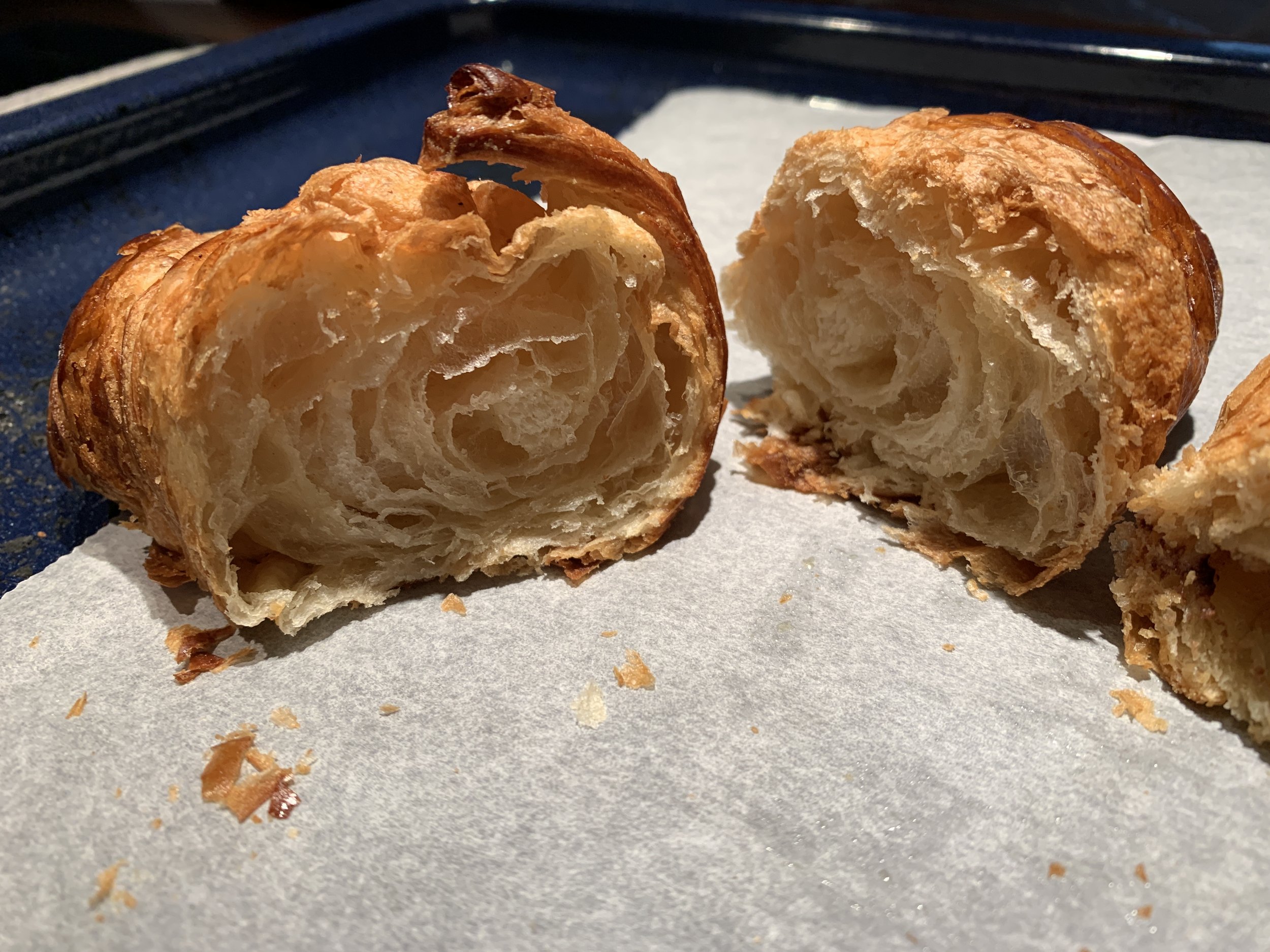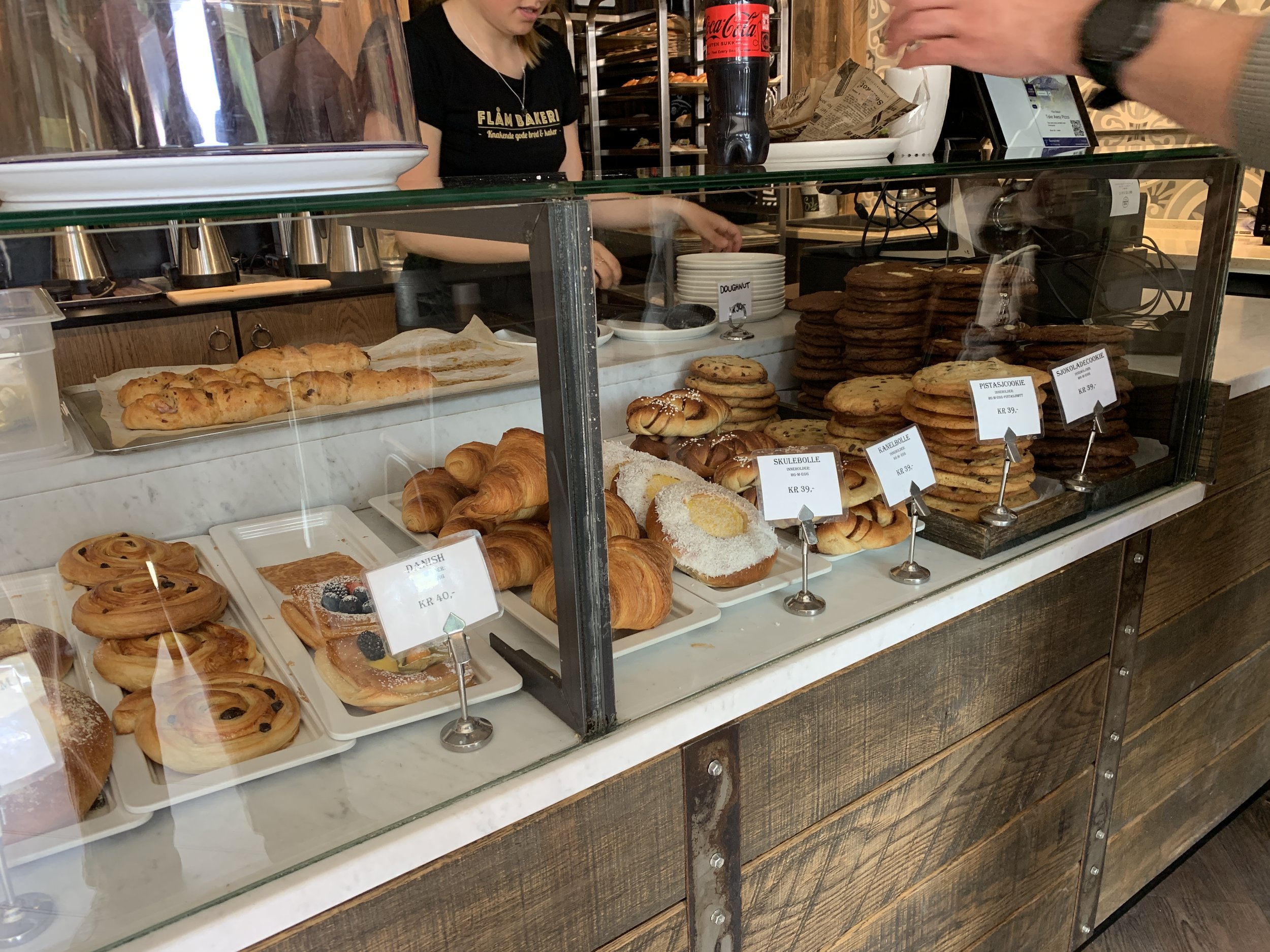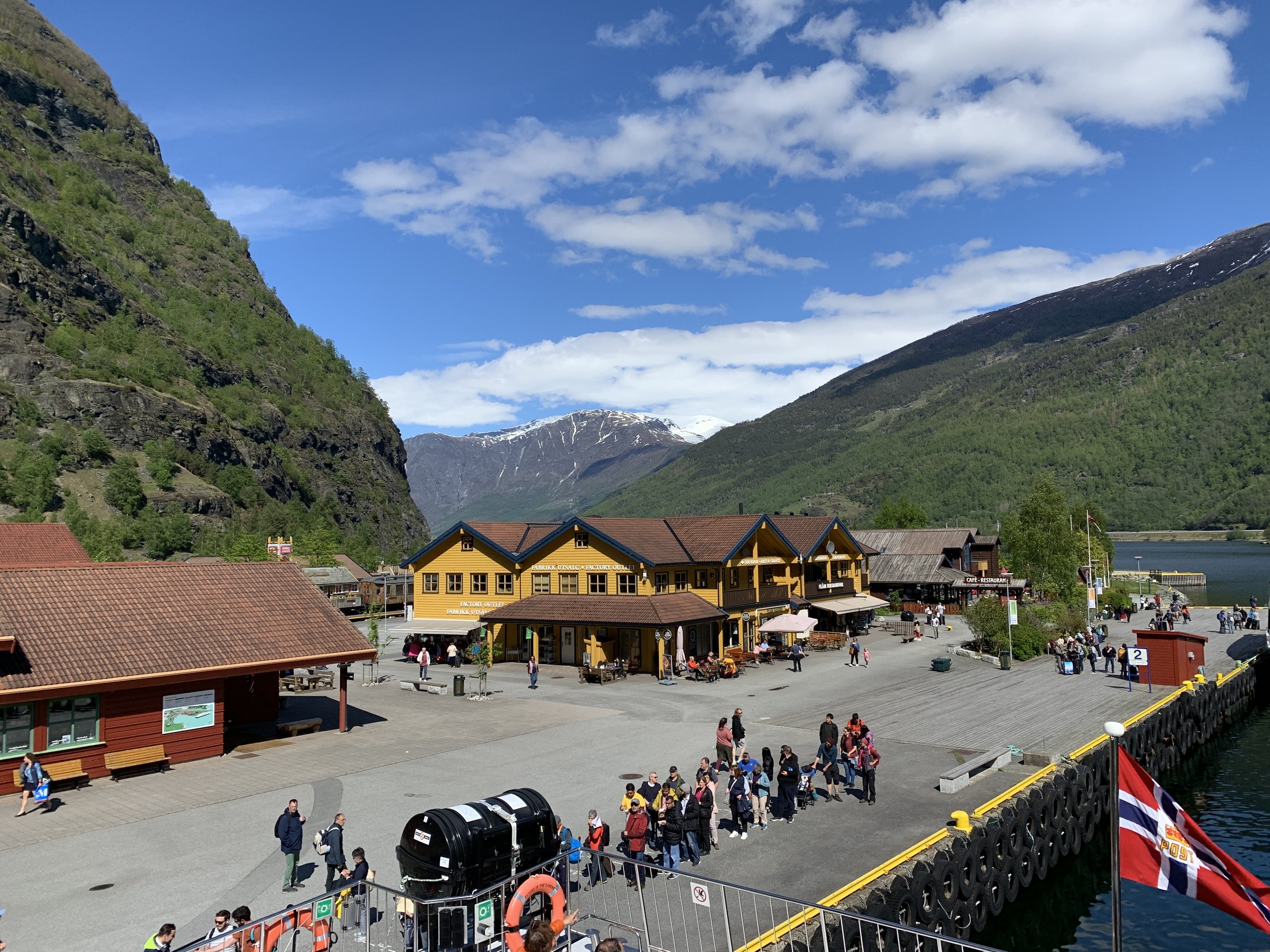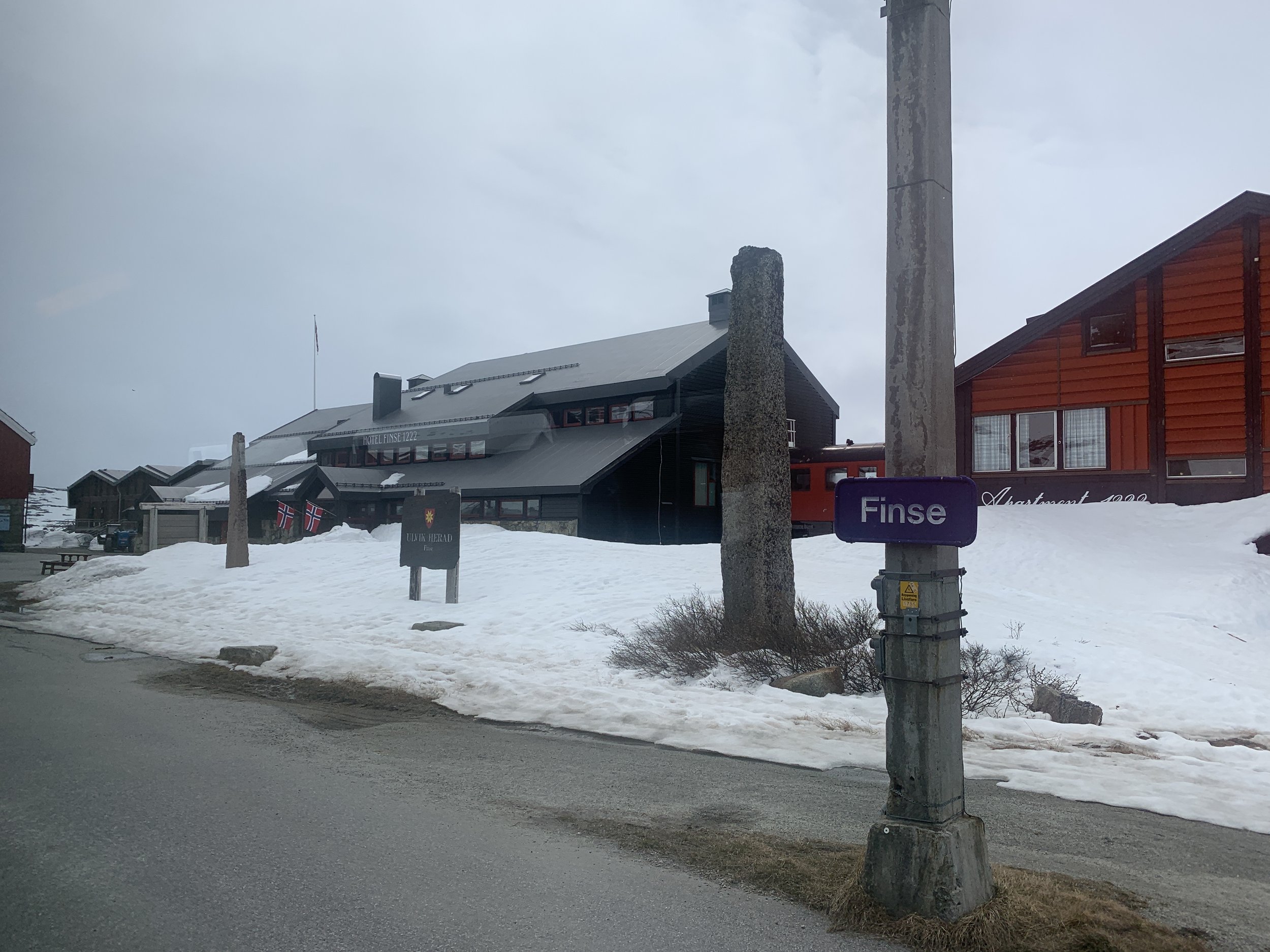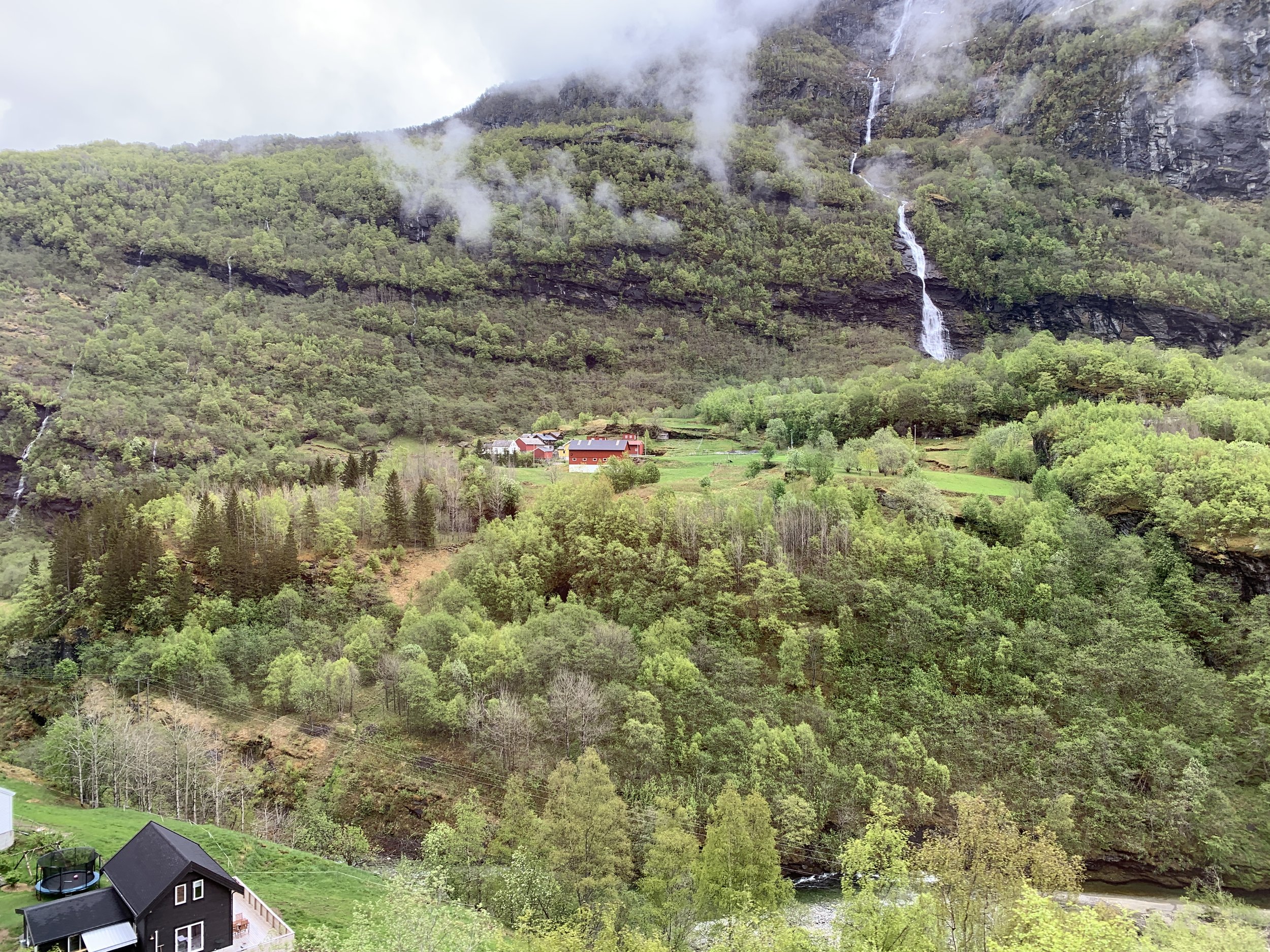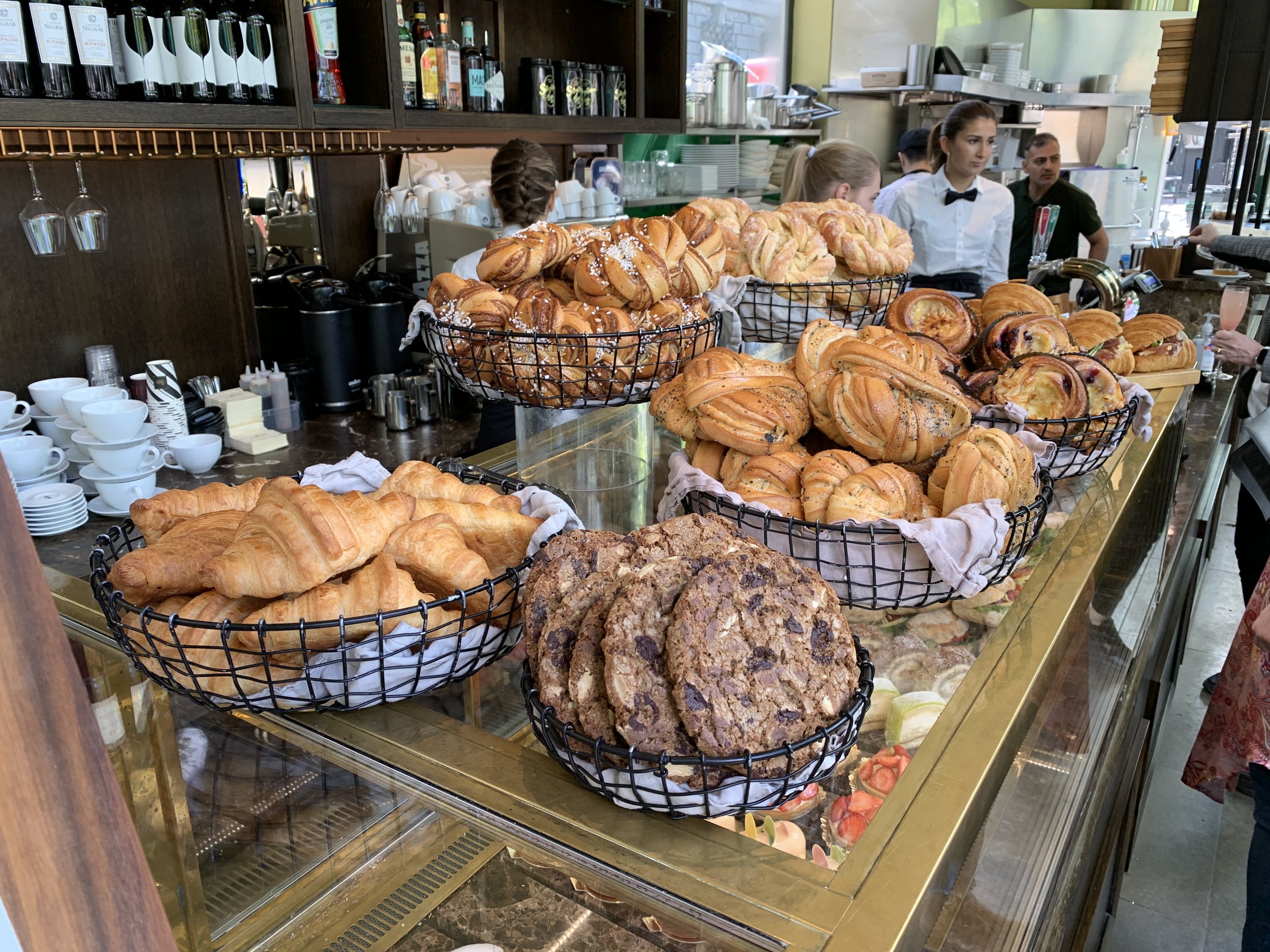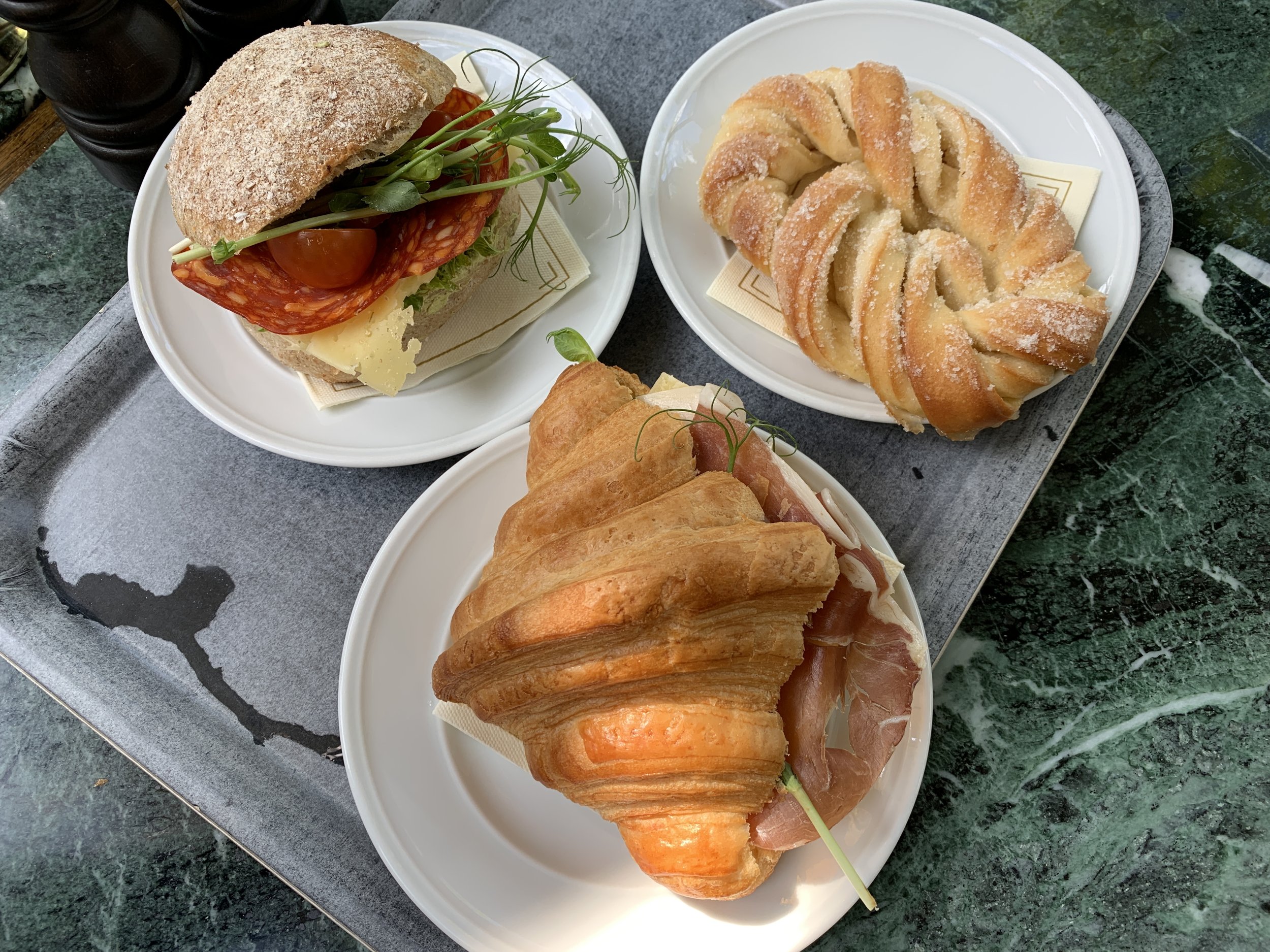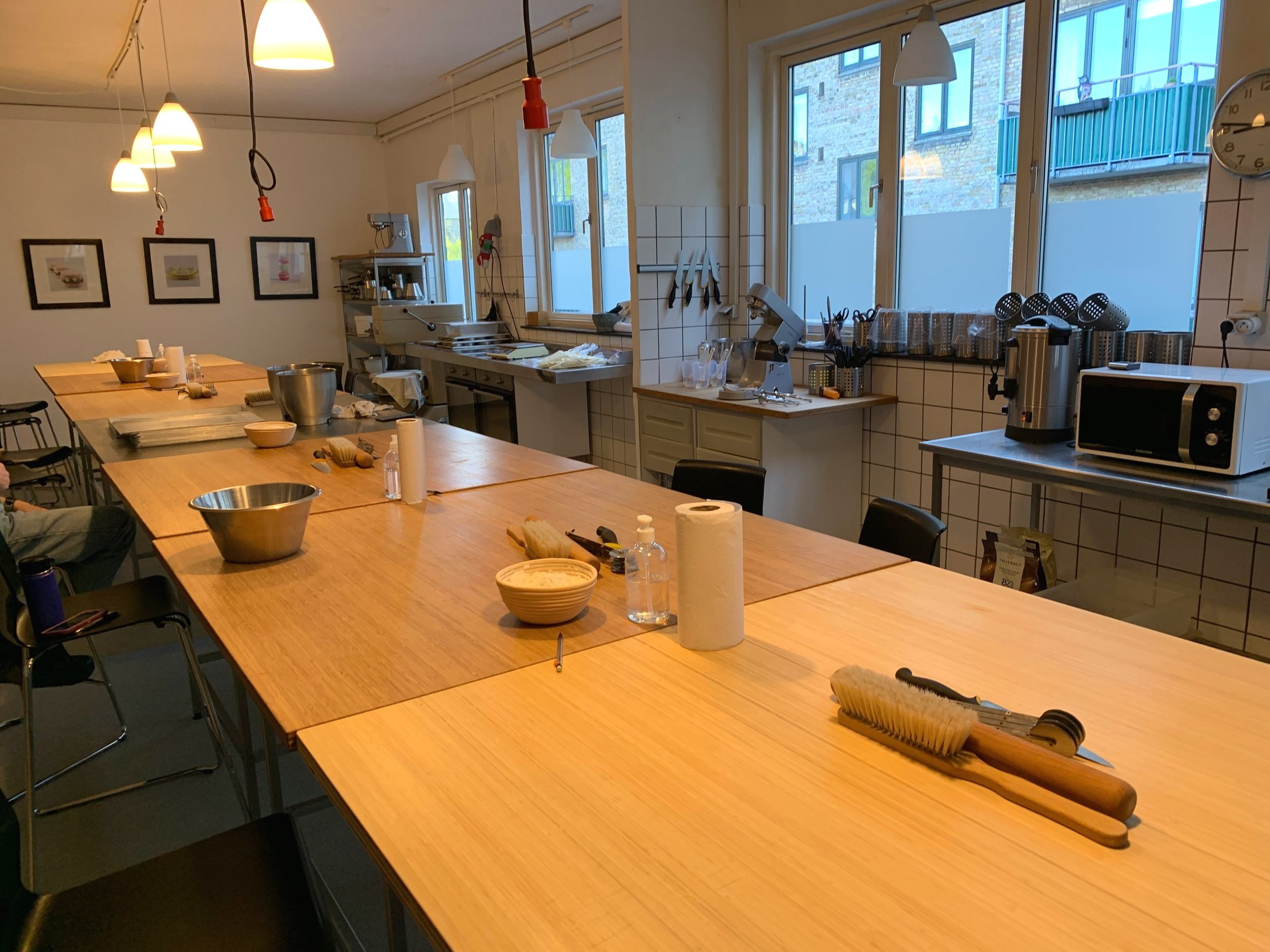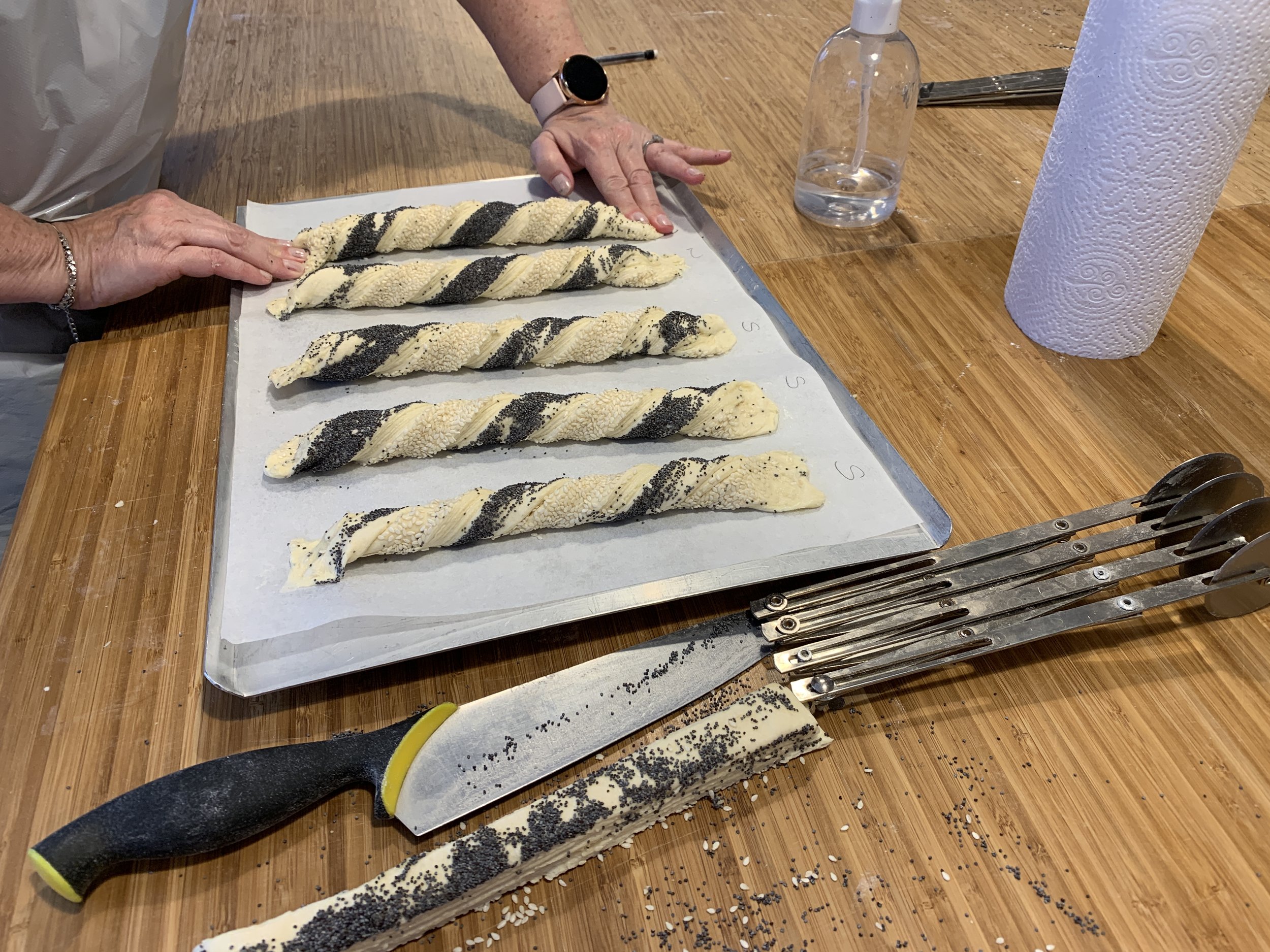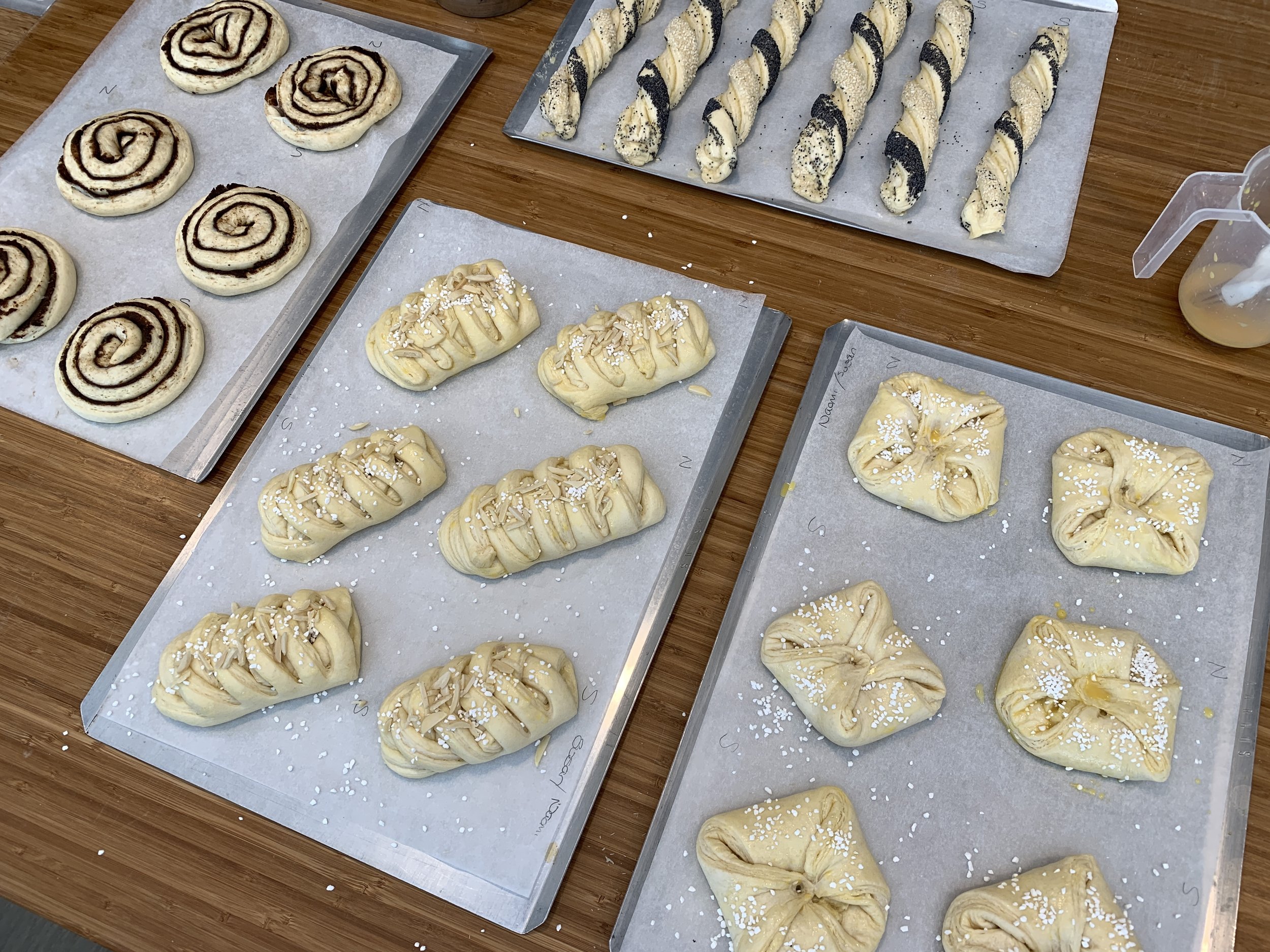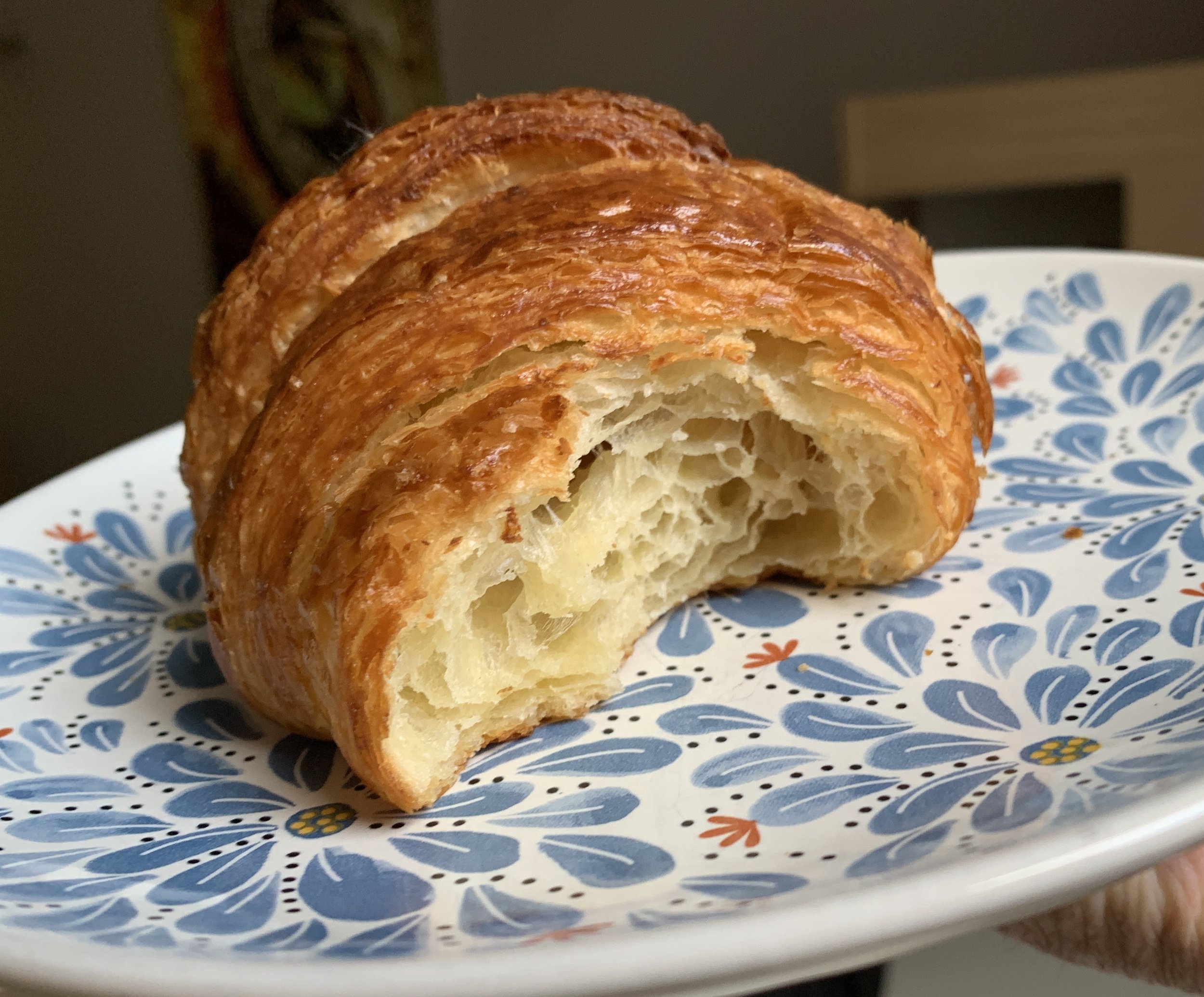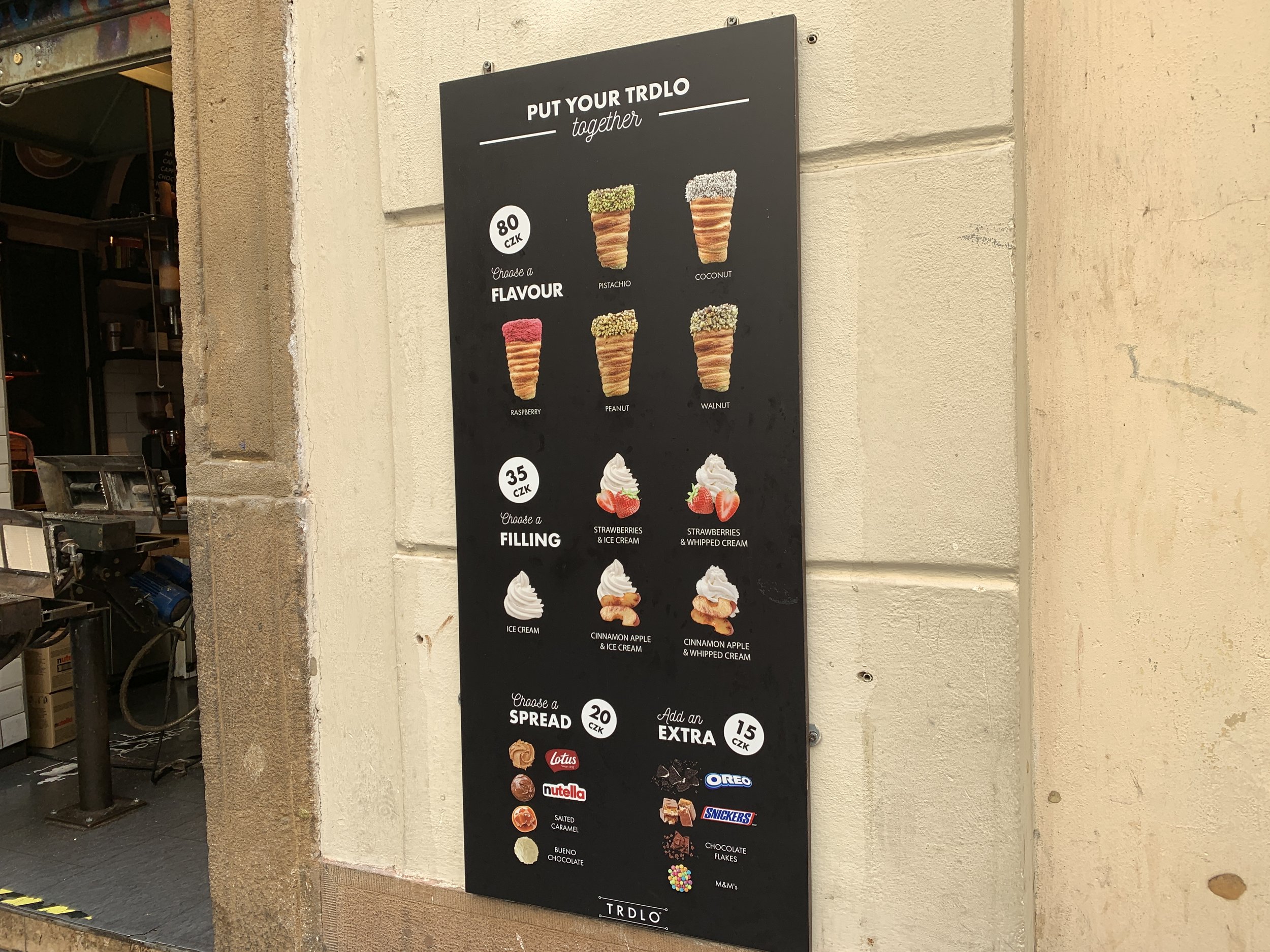Brioche craquelin encore
/I first wrote about Thomas Keller’s version of this pastry back in February of 2015 - many moons ago - and a lot has happened since, that’s for sure. I’ve been churning this through my mind for awhile and decided that autumn is a good time to write about it.
Some time back, earlier in the pandemic days, I received an email from a gentleman in NYC who was searching for tips on how to create a version of craquelin that he used to enjoy at one of François Payard’s pâtisseries (closed for several years now). He described it as having the perfect crunchy almond top that gave the orange scented brioche just the right je ne sais quoi.
Hurray! I had a project to research. Challenge accepted. I’ve puttered with it on and off and am finally getting around to setting pen to paper as it were.
I made two different versions in my quest to replicate his memory of this treat. The first made three full sized rounds in well buttered cake pans (I had two 9-inch and one 8-inch).
The process: using my freshly prepared base brioche dough, I mixed 100 g / 1/2 cup of brown sugar with a bunch of orange zest (probably 3 or 4 oranges - I eyeball it) . . . .
sprinkled half of it over the flattened dough . . . .
folded it in three as I attempted to work the filling into the dough, turned it 90 degrees, stretched it back out a bit, sprinkled the second half over it and folded it in thirds one more time.
Then into the fridge covered for an overnight rise.
Before the rise
Here it is the next morning.
I divided the dough into three pieces, about 400 g each ( a tad more for the two 9-inch and a tad less for the 8-inch), formed rounds and placed them in the prepped pans. Note the aluminum foil wrapped around the 9-inch pans. They have removable bottoms so I wanted to avoid any butter leakage during baking.
Cover with lightly buttered plastic wrap and let rise for 1.5 to 2 hours. Remember brioche is very enriched and requires a good rise for the hoped for fluffy and light end result.
Toward the end of the rise heat the oven to 350ºF.
After the rise
I used three topping variations just for comparison’s sake. Have some toasted sliced almonds at the ready. Make the crunchy sugar topping by blending 6 tablespoons granulated sugar with 1.5 teaspoons vanilla and 1 tablespoon water (this is enough for the three pans).
Drizzle about a third of the sugar mixture over each brioche. I left one without further adornment, topped one with sliced almonds and the third with both sliced almonds and some crushed raw sugar cubes.
Bake 35-40 minutes, rotating pans half way through, until nicely golden brown.
Sugar drizzled
Sugar drizzled with almonds
With added crushed raw sugar
Let sit about 10 minutes before un-molding and placing on racks to finish cooling.
I must say all were pretty tasty, but, being a sucker for crunchiness, I really enjoyed the sugar drizzle/almond/crushed sugar cube version.
The crumb was light and nicely flavored with the orange zest.
OK good! Now on to the second version for which I followed Joanne Chang’s approach from her book “Flour: Spectacular Recipes from Boston’s Flour Bakery + Cafe”.
I knew that Joanne had worked at Payard’s in NYC back in the beginning of her baking career, so what did I do? I sent her an email asking about the process they had used! She kindly directed me to her book (link above) which I found at our local library and delved into the steps.
A few differences: individual brioche, adding candied orange rind (like Keller does) with crushed raw sugar and a slightly different topping. I can do this.
Thin slice two oranges and poach the slices in simple syrup until softened and more translucent. Let them cool and drain on a wire rack then chop into small pieces. You can do this ahead and hold in the fridge for several days if need be.
I had about a cup of rind in the end. Crush raw sugar cubes to yield about 1/2 cup of rough pieces.
For a yield of nine ~ 80 g portions: using 720 g of cold brioche dough after its overnight fridge rise, roll the dough into an approximately 10” (25 cm) by 18” (45 cm) rectangle.
Distribute the chopped orange rind and crushed sugar over the top 2/3 of the dough.
Fold the bottom third up over the middle third.
Fold up again to cover the top third.
Cut nine slices, each about 1 3/4 inches (4.5 cm) wide. You can trim up the ends first if you like - I left mine au naturel.
Place spaced apart on a parchment lined cookie sheet, cover with lightly buttered plastic wrap and let rise about 1 1/2 to 2 hours.
Before the rise
Toward the end of that time frame heat the oven to 350ºF.
After the rise
Make a slurry by mixing one large egg, 50 g granulated sugar and 50 g sliced almonds in a medium bowl. Spoon the mixture over each brioche.
Bake about 30-35 minutes until golden brown. You know my mantra - always check sooner than later!!
Cool, dust with powdered sugar and enjoy!
Here’s a cross section - lovely pockets of orange flavor, nice crumb and pretty darn good crunchy top too!
Just goes to show you how you can create variations with your own favorite brioche or sweet bun dough. Have fun with it!
Beautiful colors are popping and fall is definitely in the air! Enjoy!!

